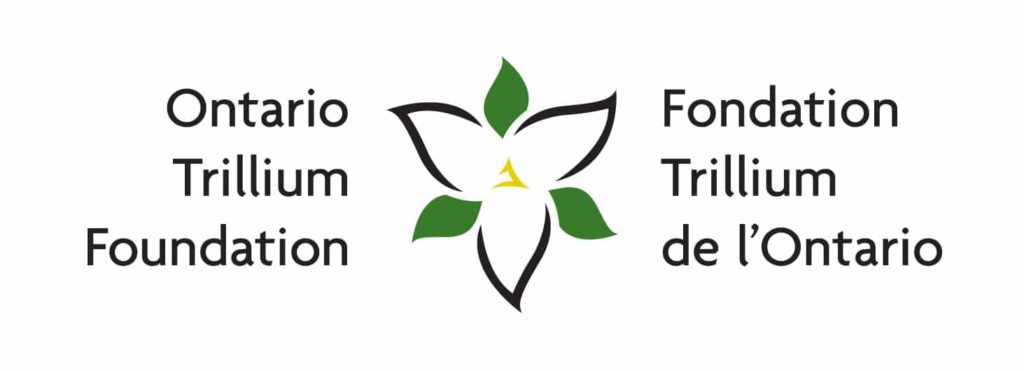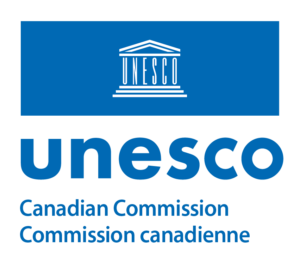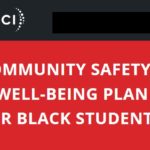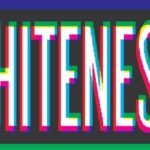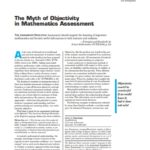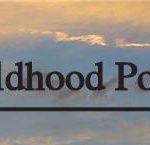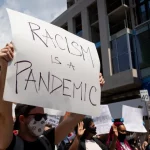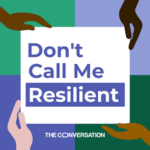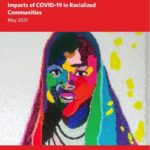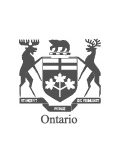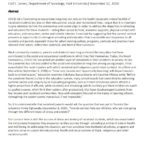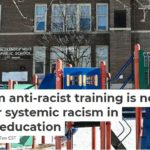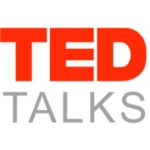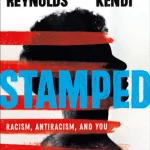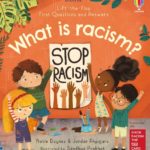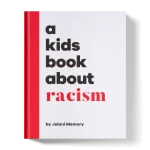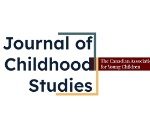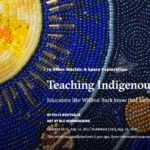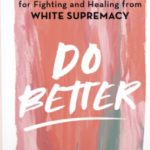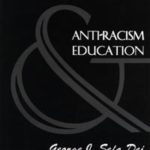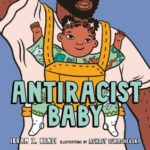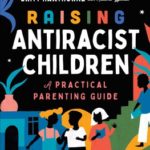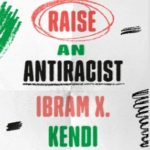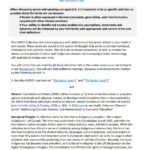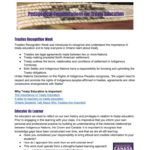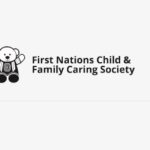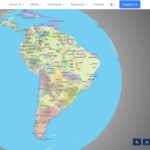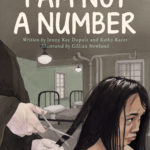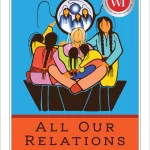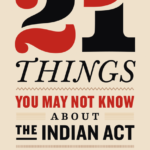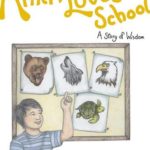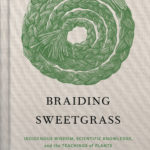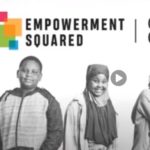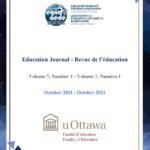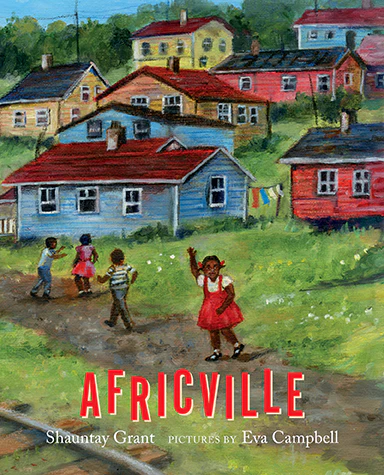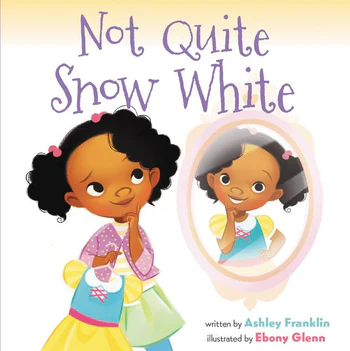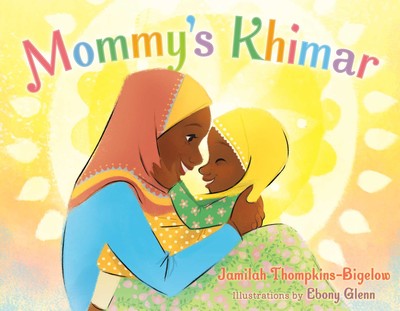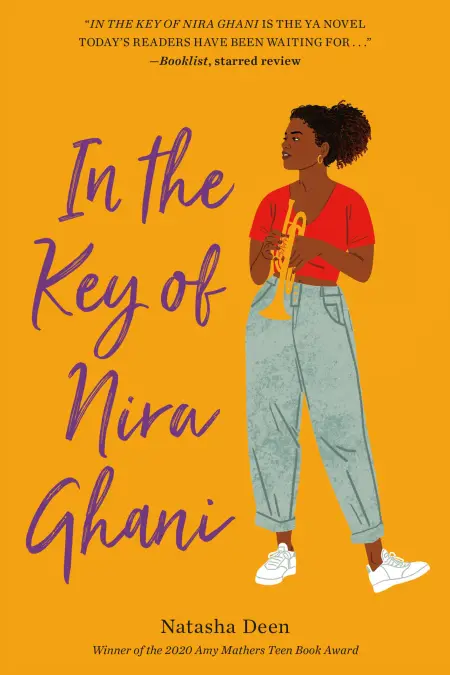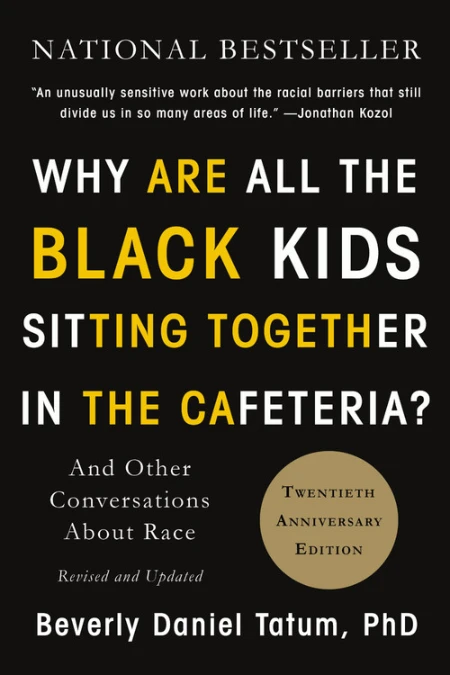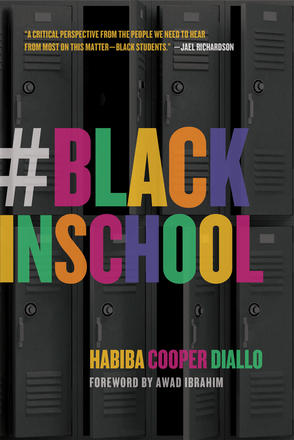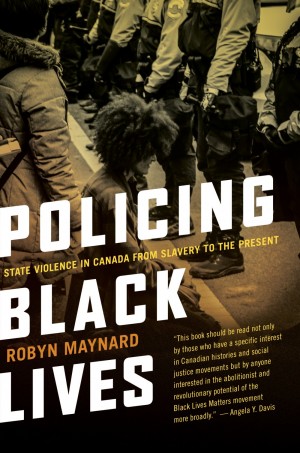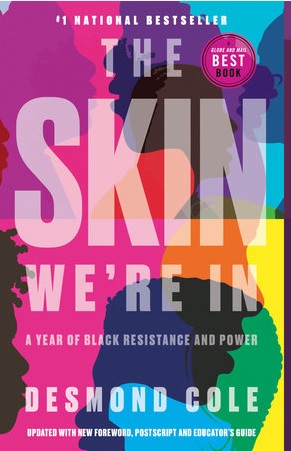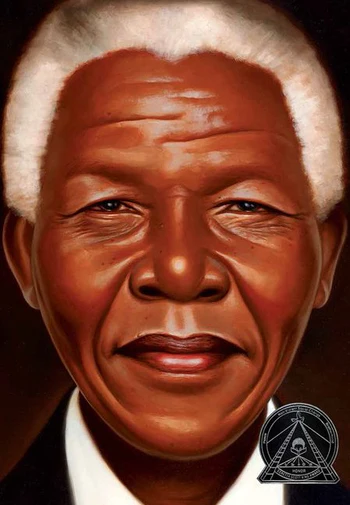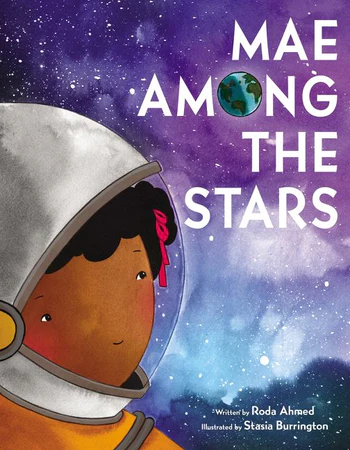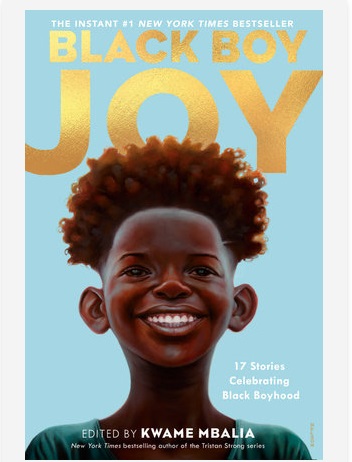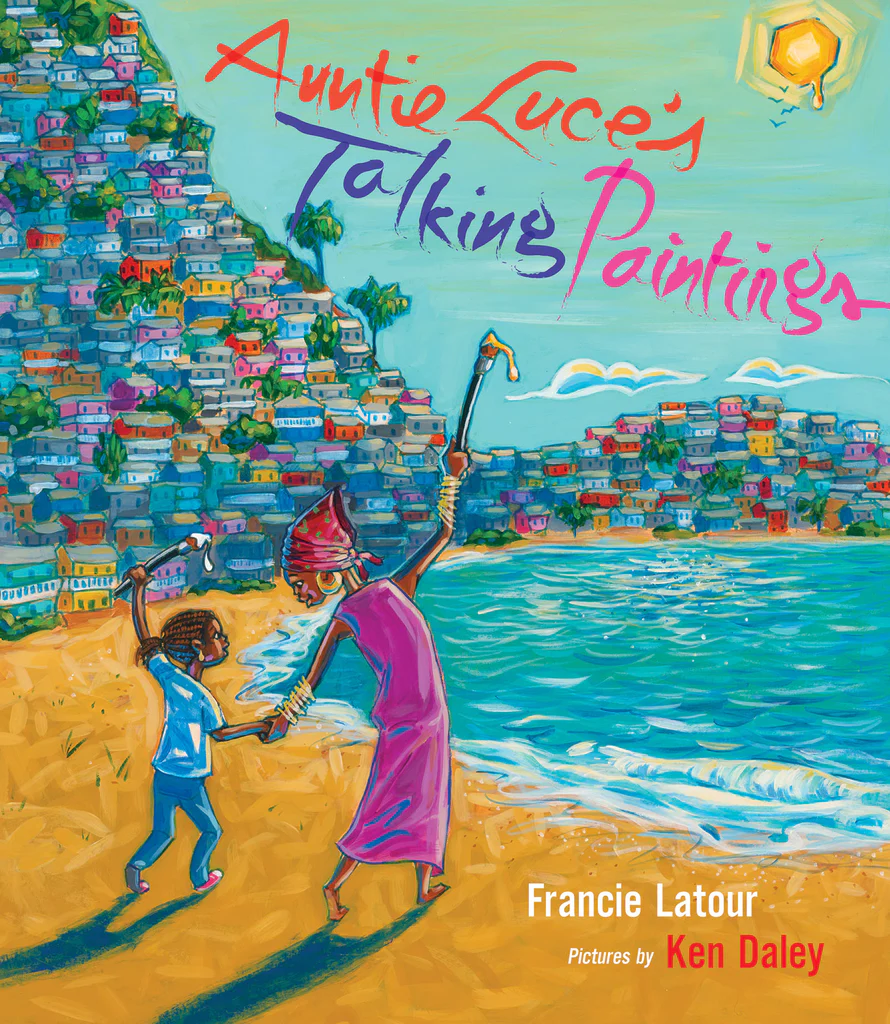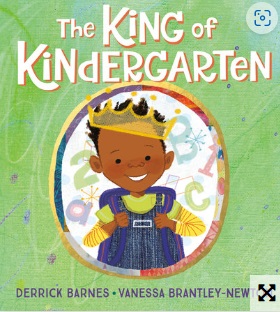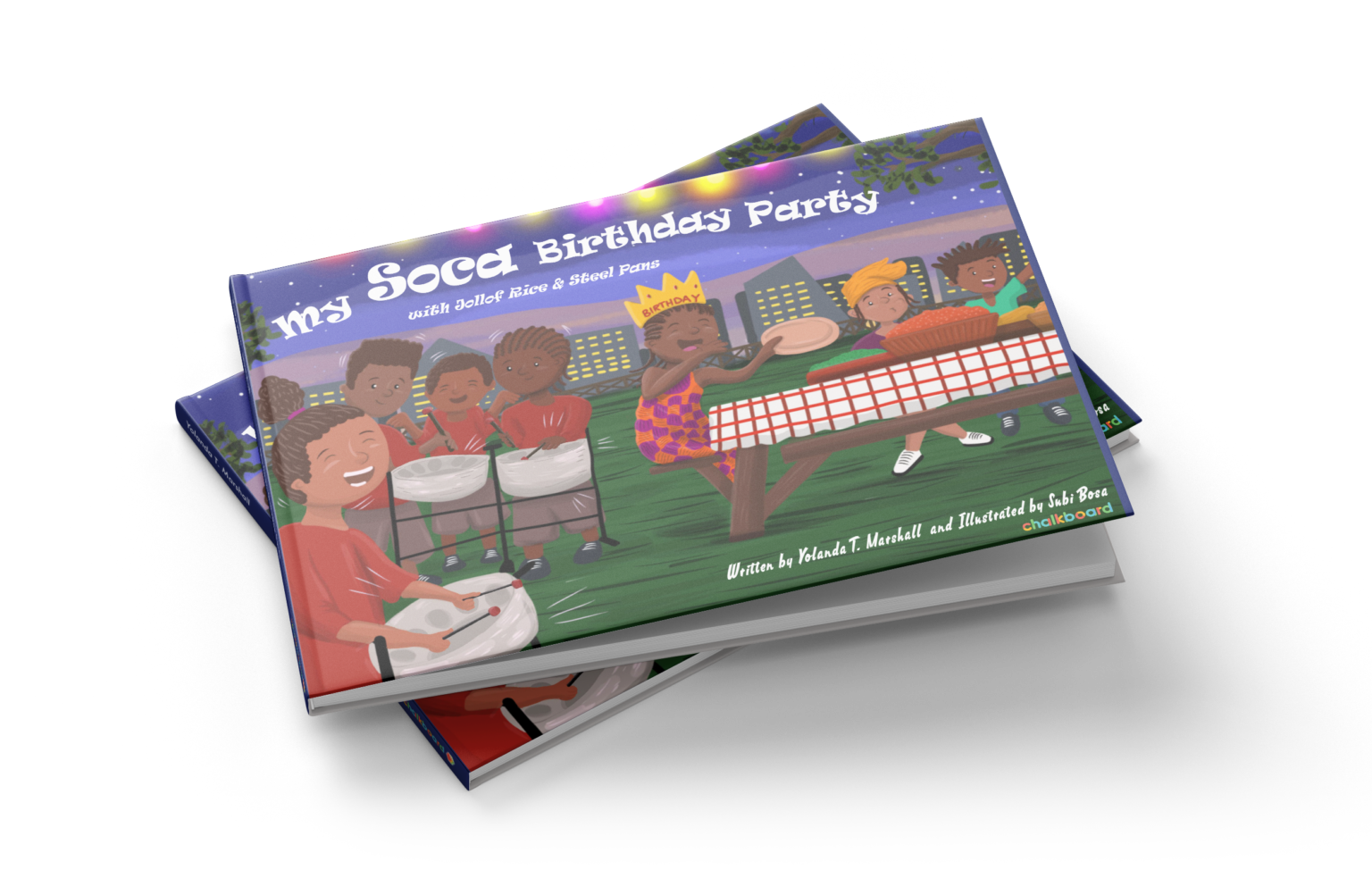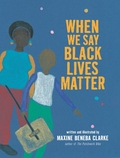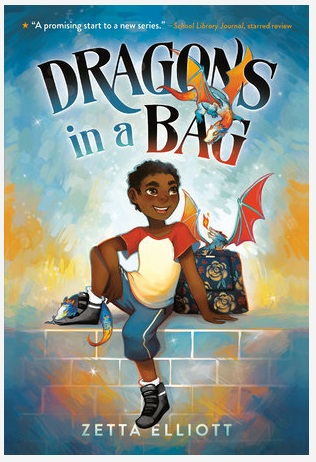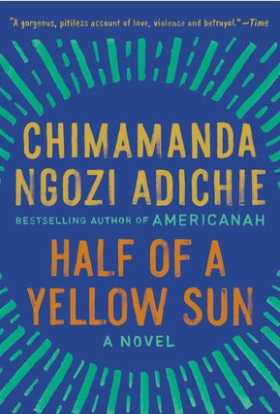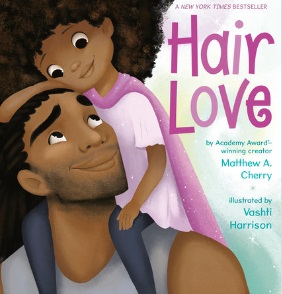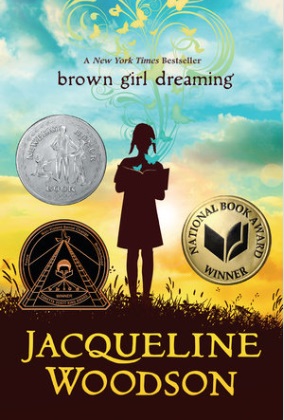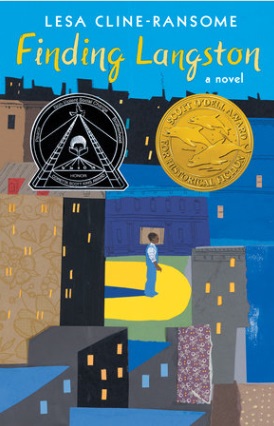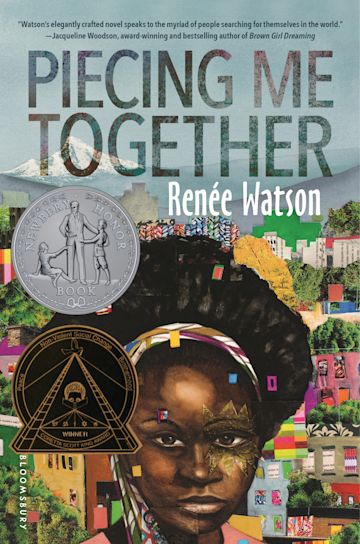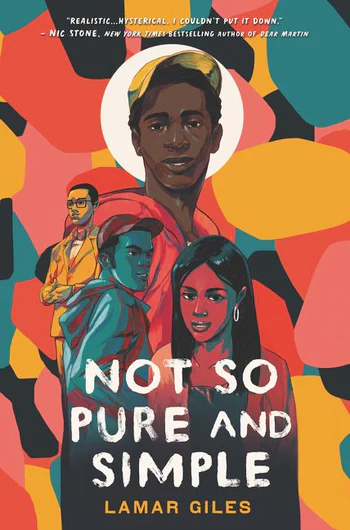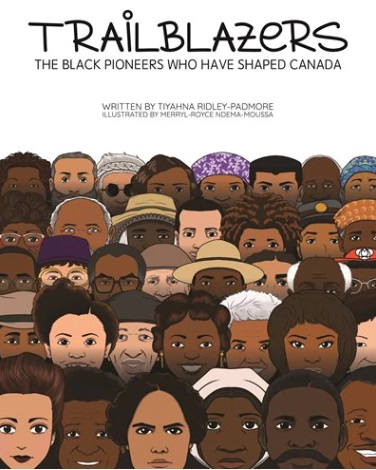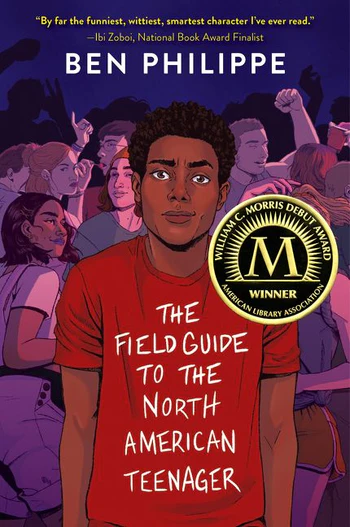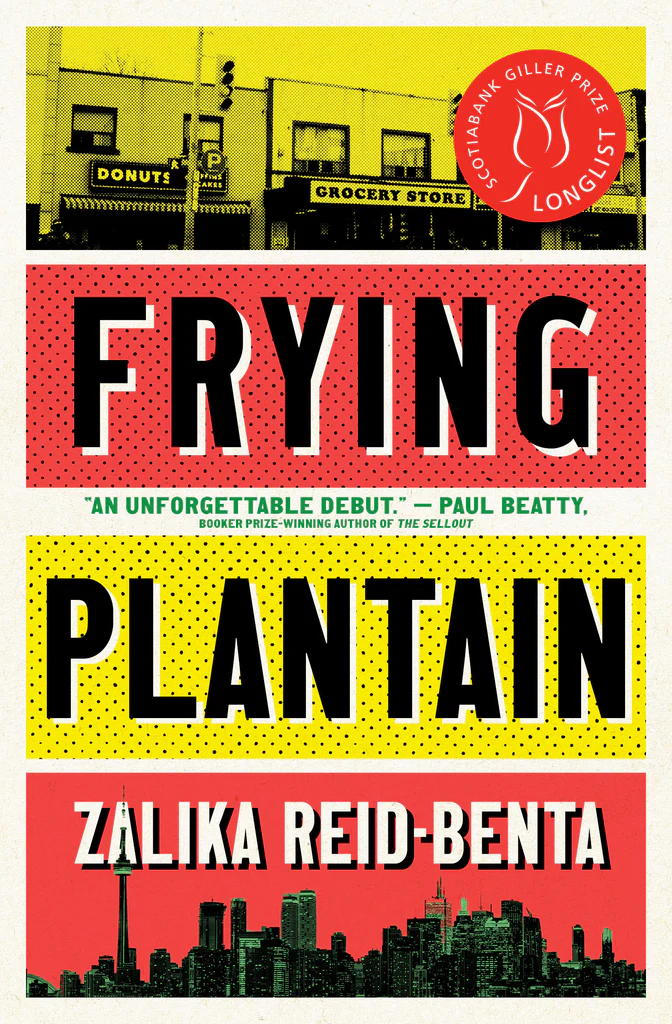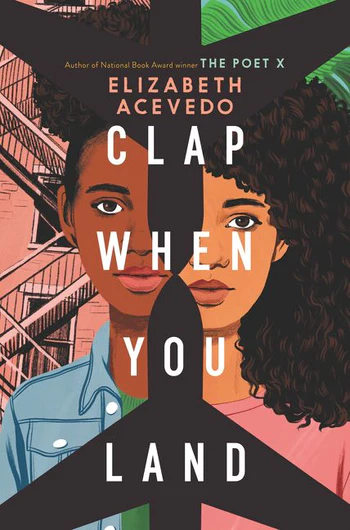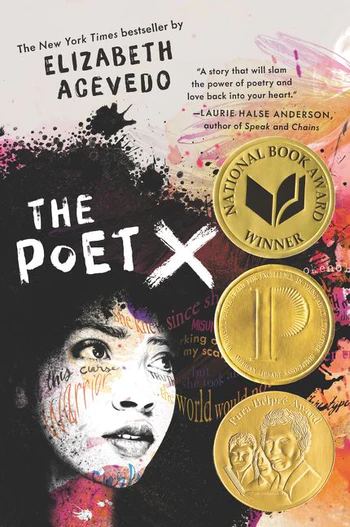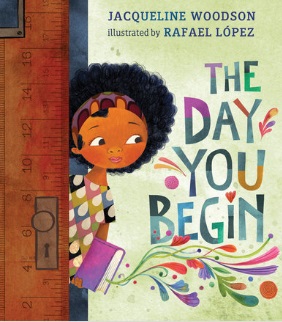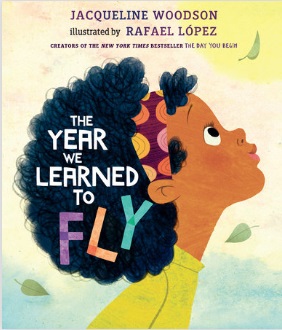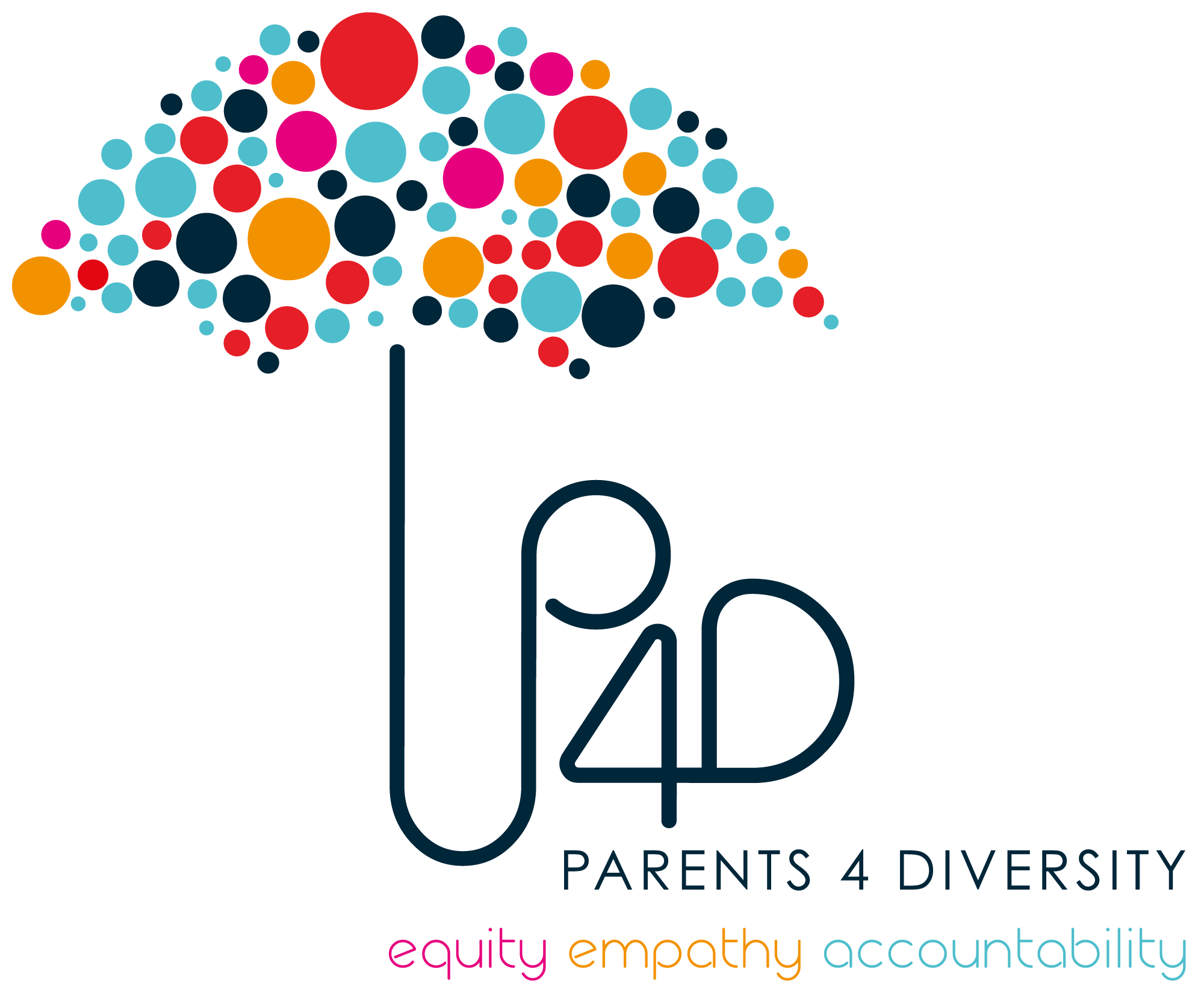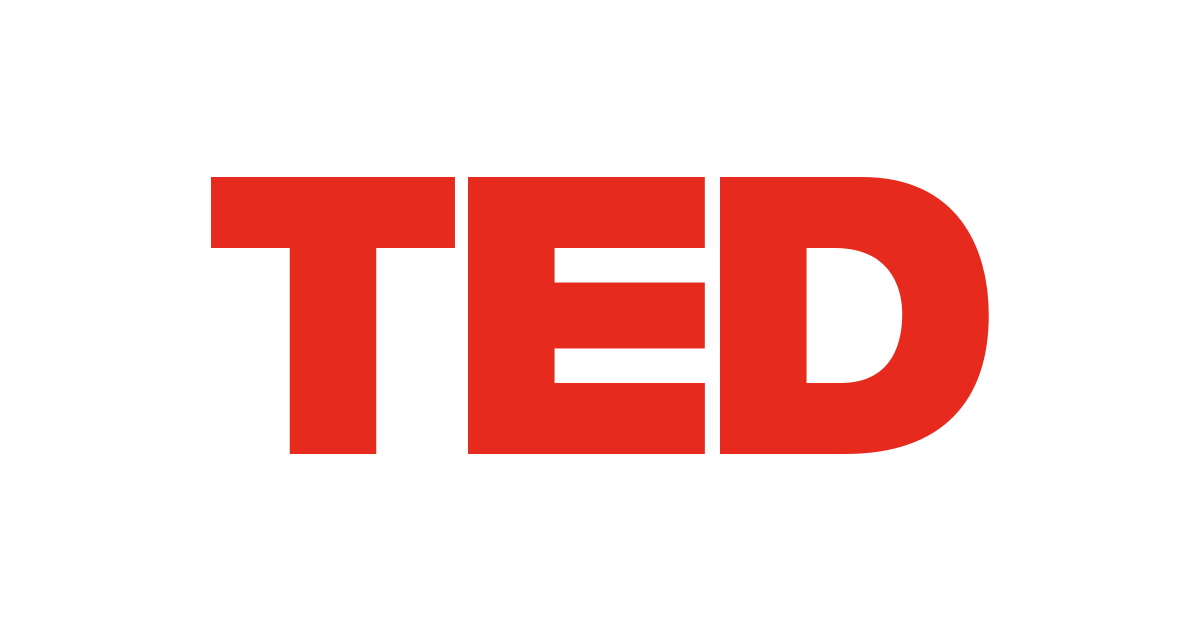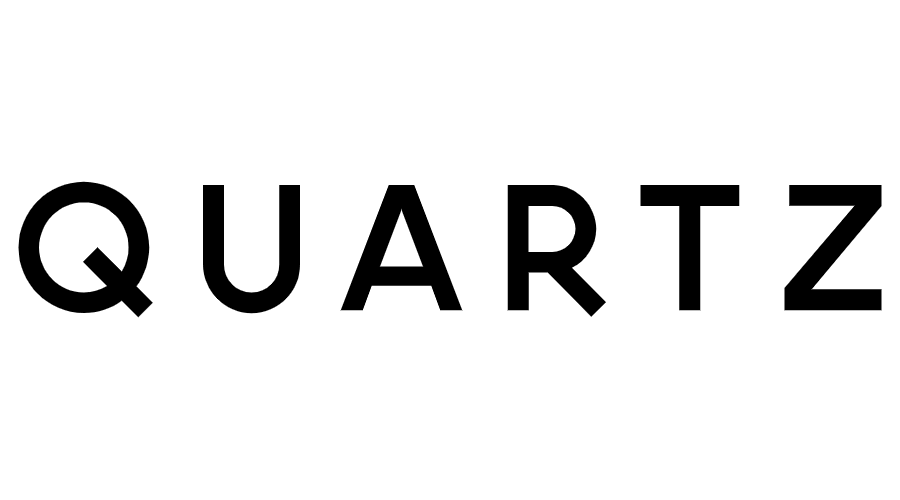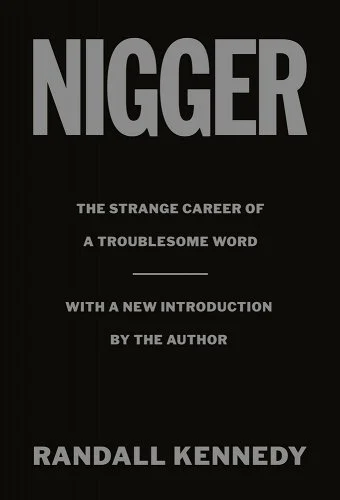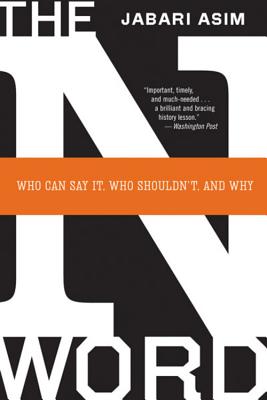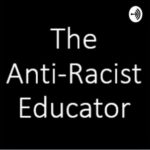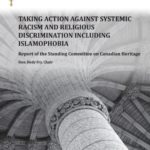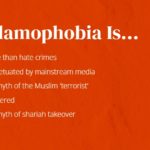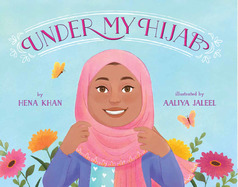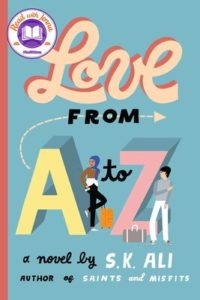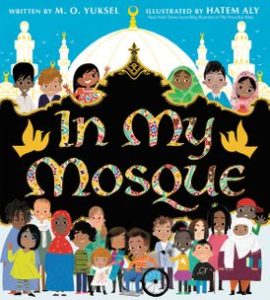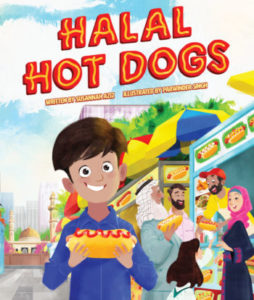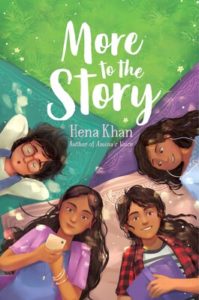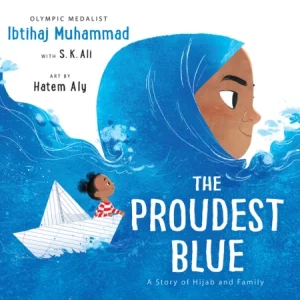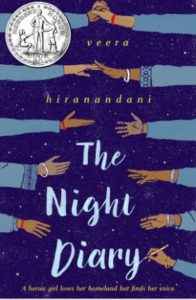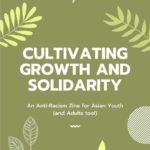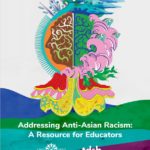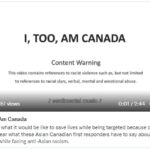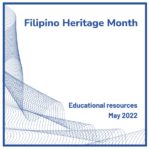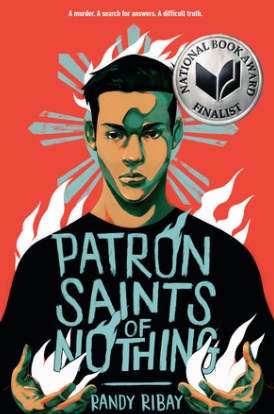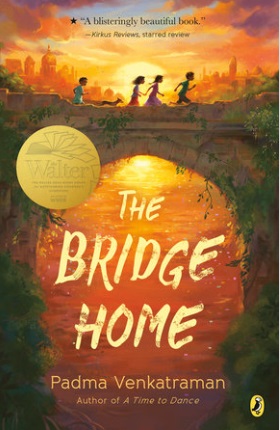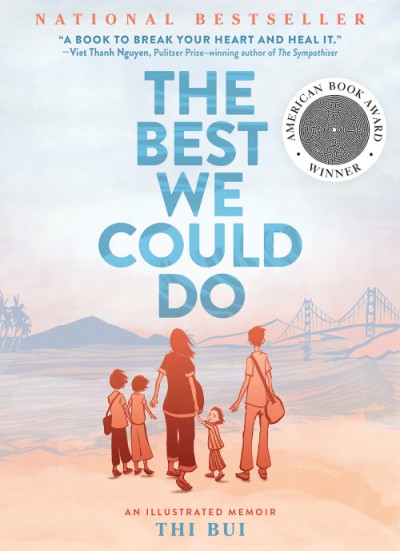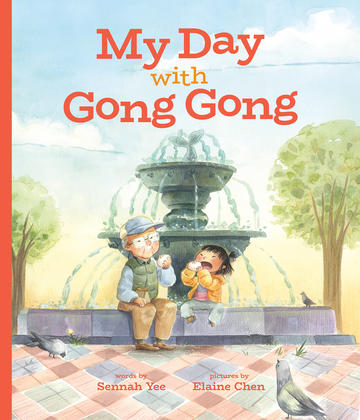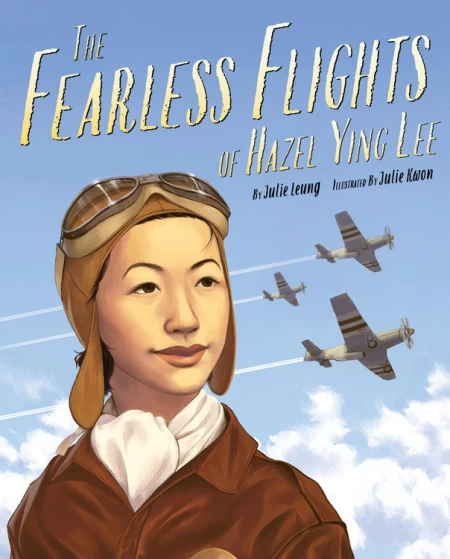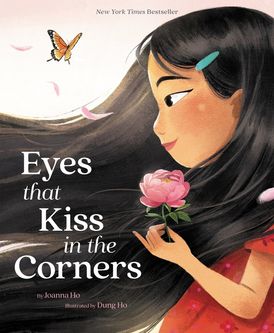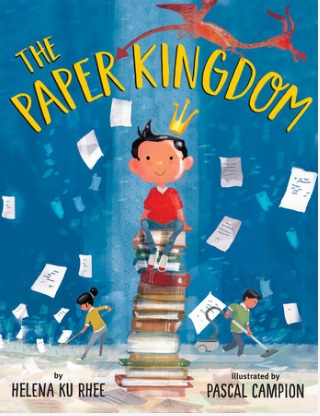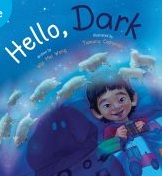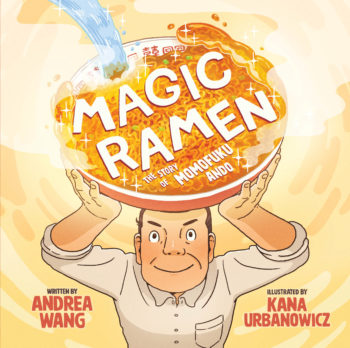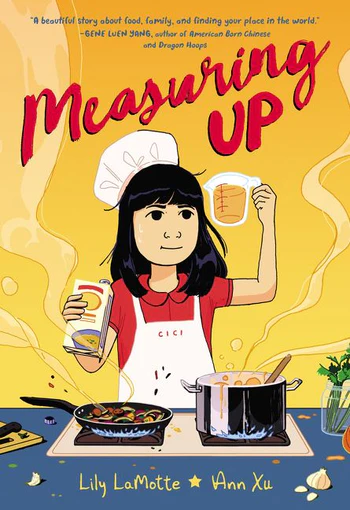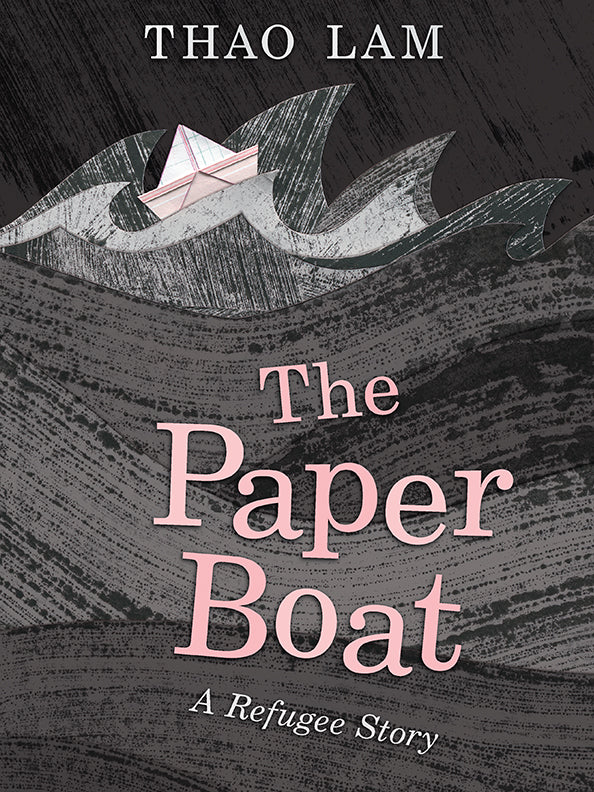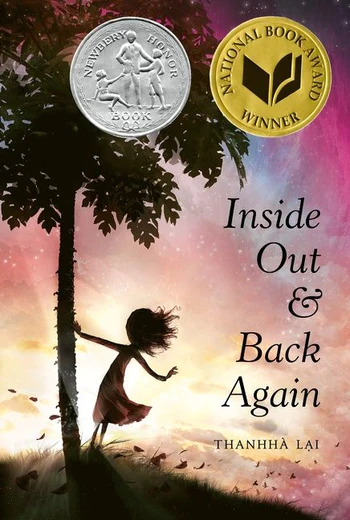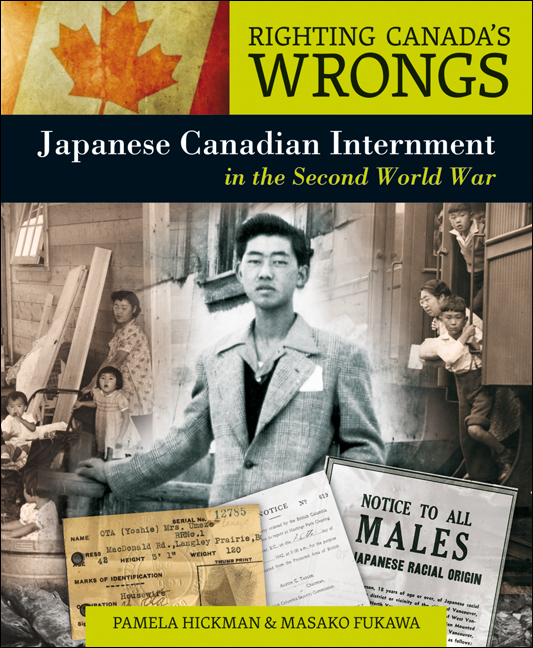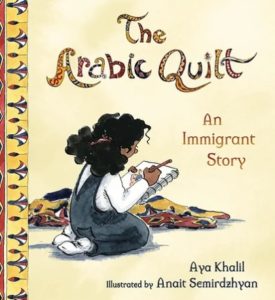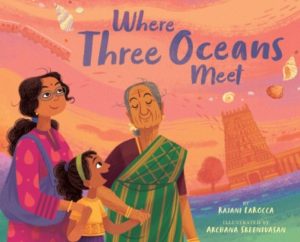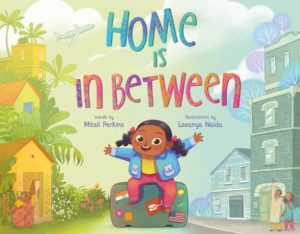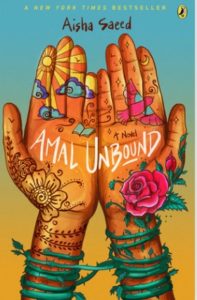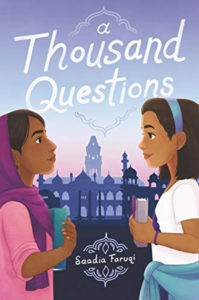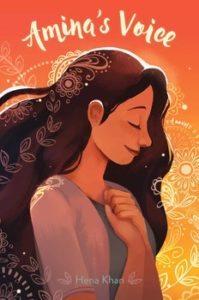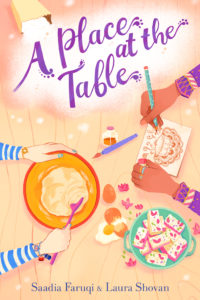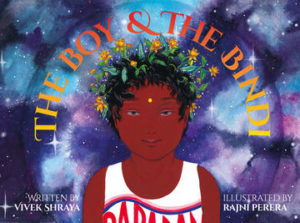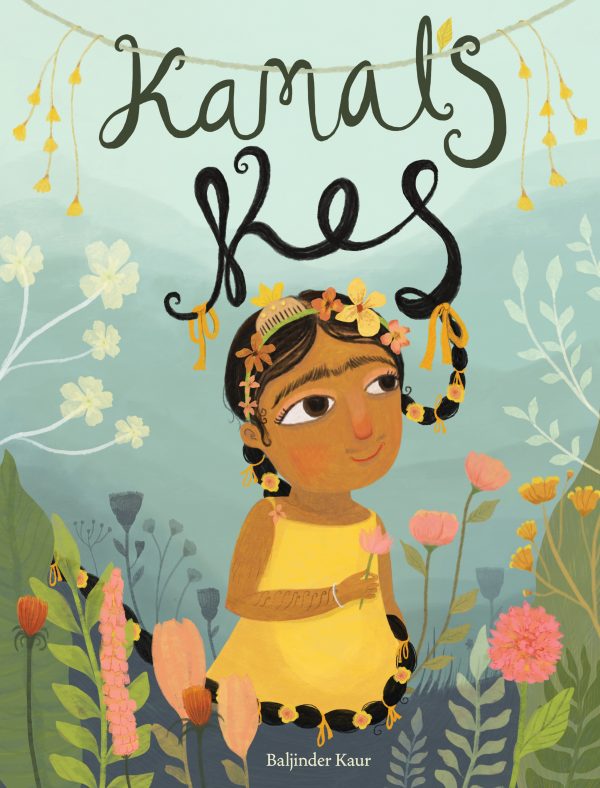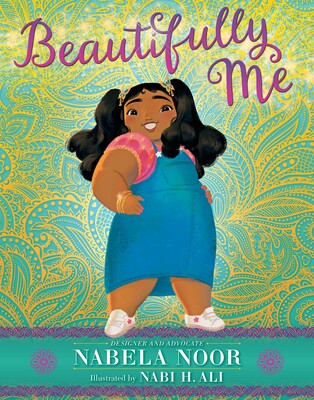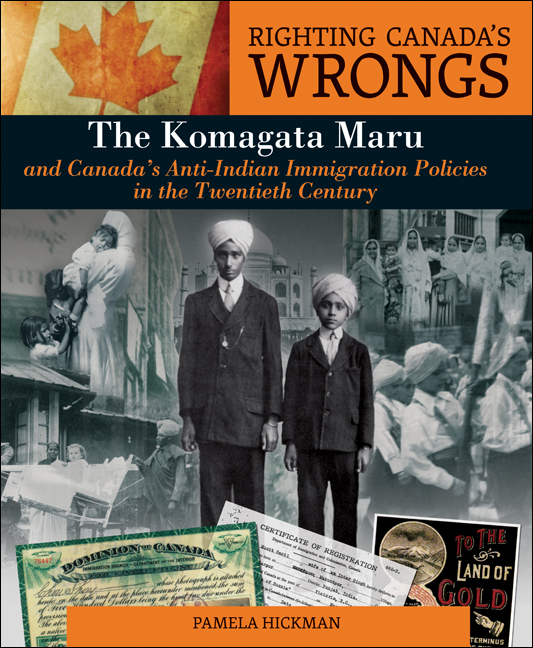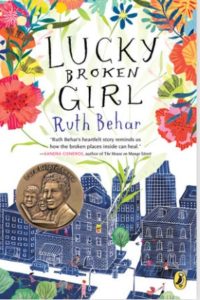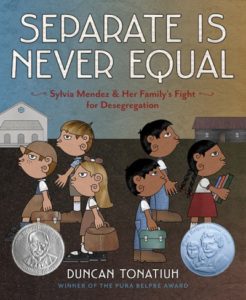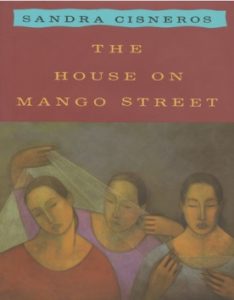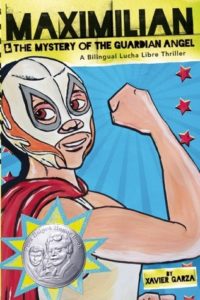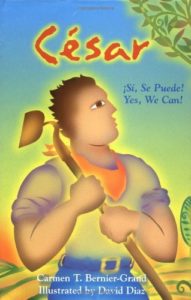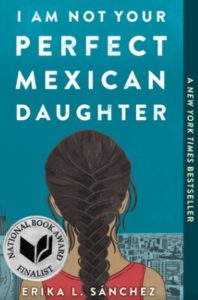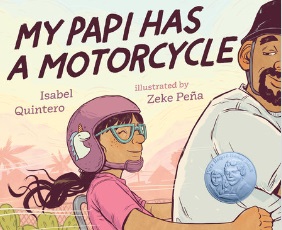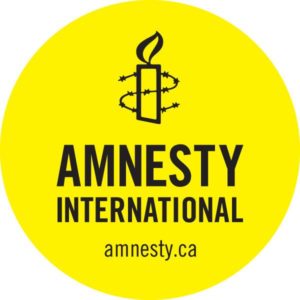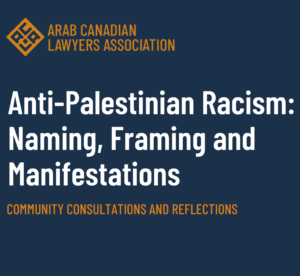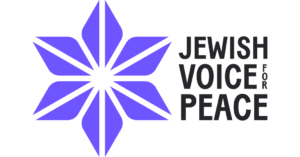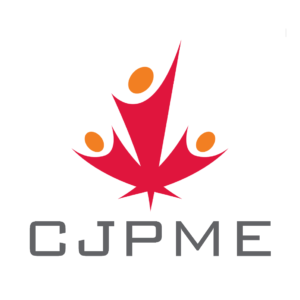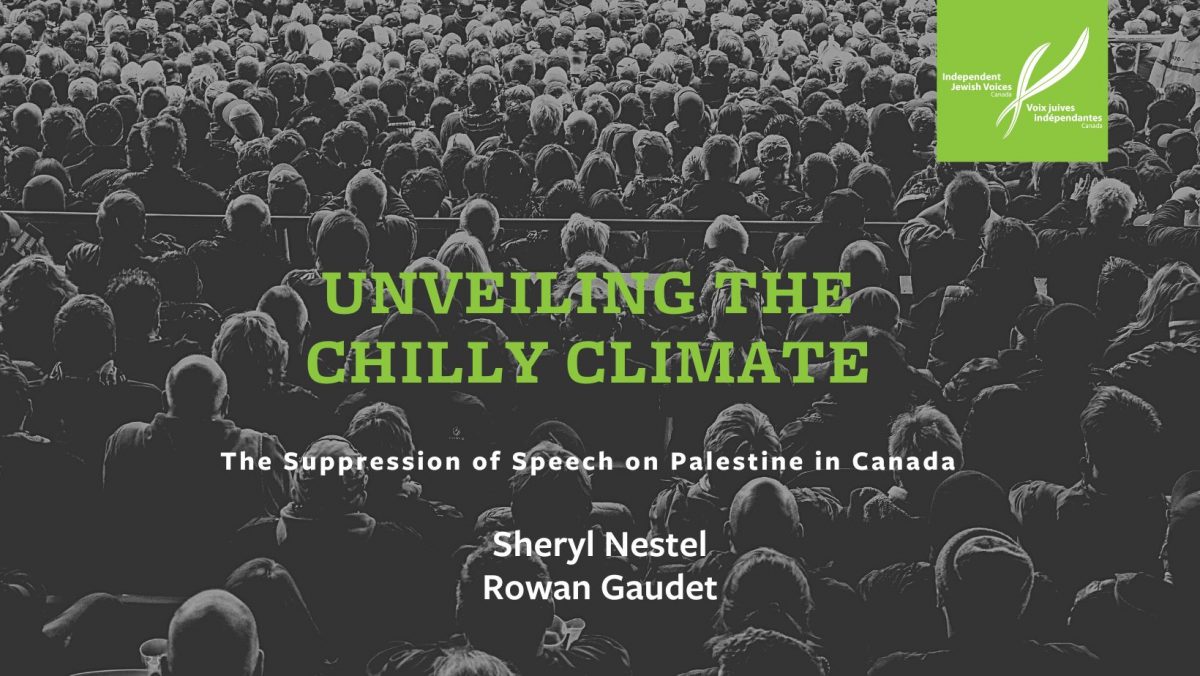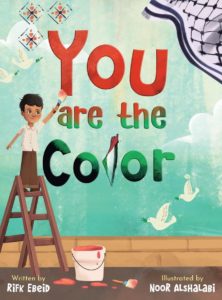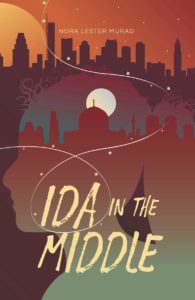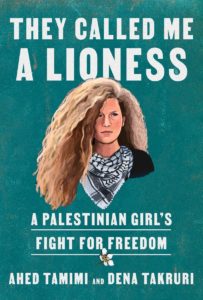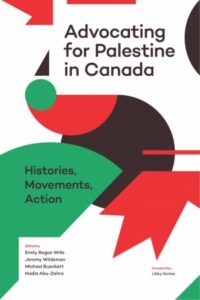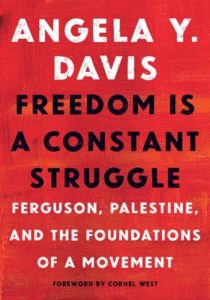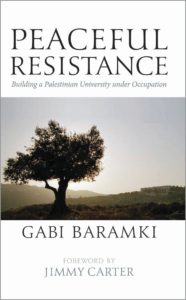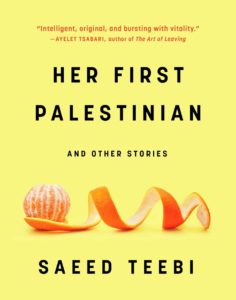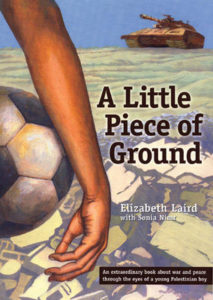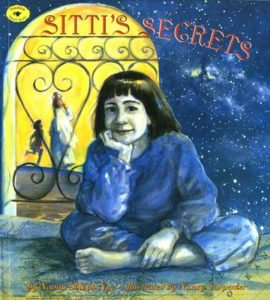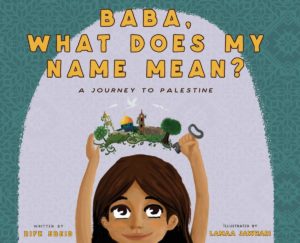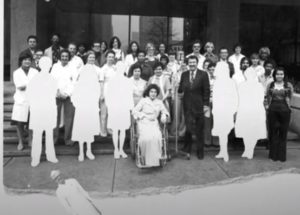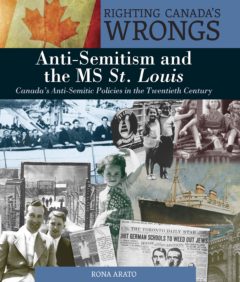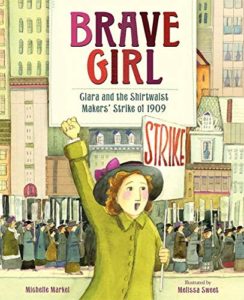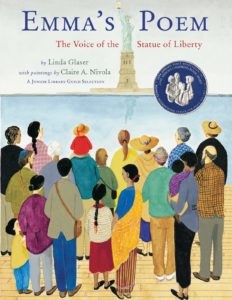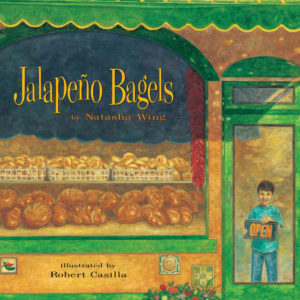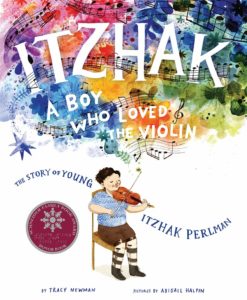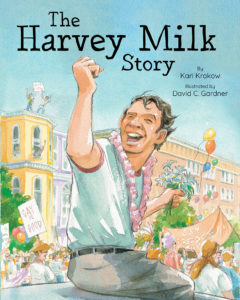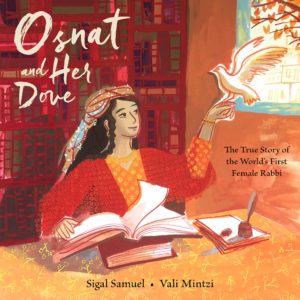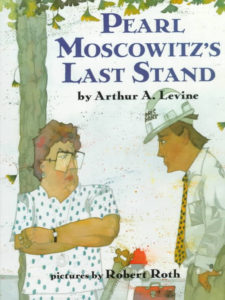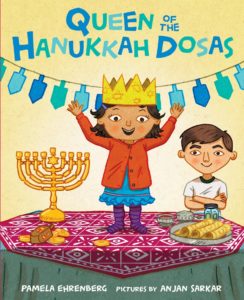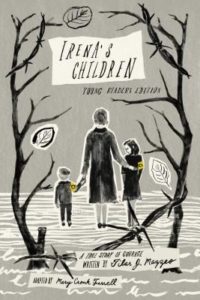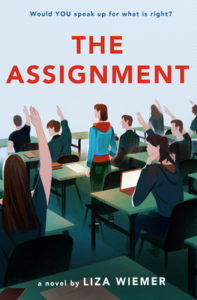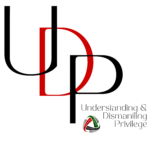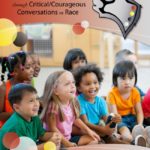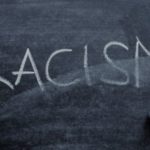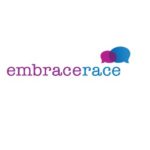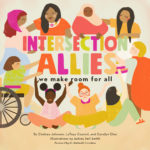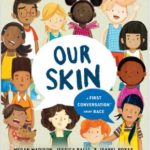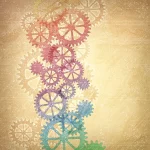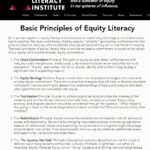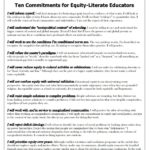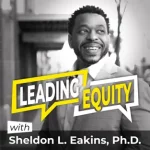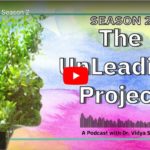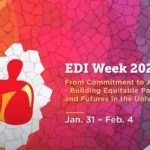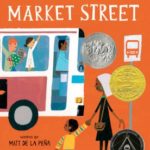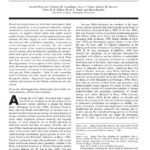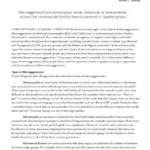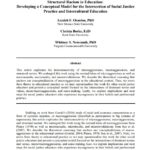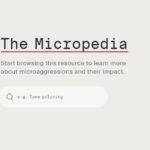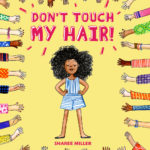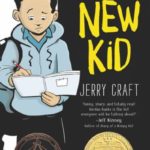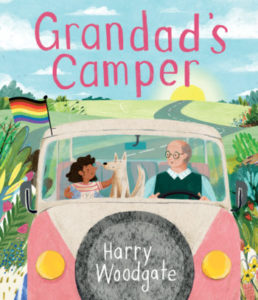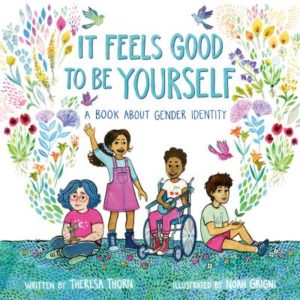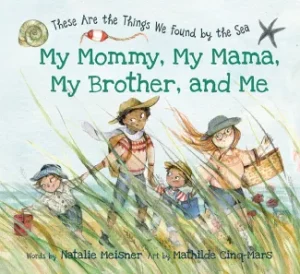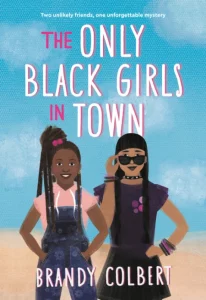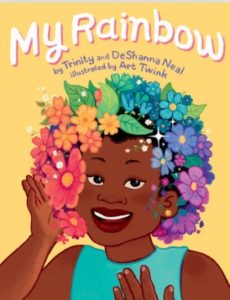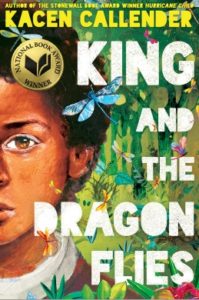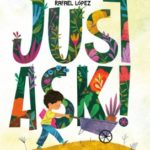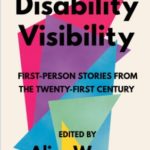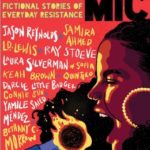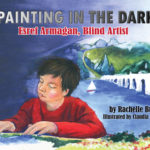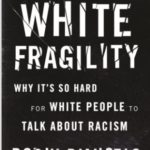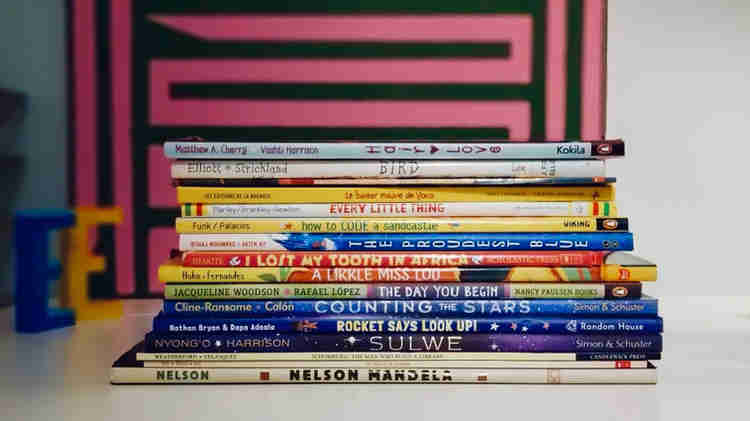
Uthabiti:
An Anti-Racism Collection
Parents for Diversity is proud to present a multimodal, anti-racism diversity library – one that will support the intersectional anti-racism work for families and children, educators, administrators, and system leaders as well as community organizations. The library includes resources such as podcasts, reports from the ministry, international organizations, non-profit organizations, news articles, children’s books, books for adults, audiobooks, blogs, videos, films, and current terminology to support intersectional anti-racism work. You can search through our growing library by the various categories below.
Racism
Racism = Racial Prejudice + Power
Racism is different from racial prejudice, hatred, or discrimination. Racism involves one group having the power to carry out systematic discrimination through the institutional policies and practices of the society and by shaping the cultural beliefs and values that support those racist policies and practices. Source: Alberta Civil Liberties Research Centre


Teacher Education Needs to Acknowledge 'Whiteness'
Date of Publication: 2019/09/12
Author/Organization: Hui-Ling Malone
. . .
Type of Document: Article

The Classical Roots of White Supremacy
Date of Publication: 2021
Author/Organization: Learning for Justice
. . .
Type of Document: Article

Why Talk About Whiteness?
Date of Publication: 2016
Author/Organization: Teaching Tolerance
. . .
Type of Document: Article

White Teachers, Here’s How to Handle Being Called Racist
Date of Publication: 2017/07/07
Author/Organization: Tom Rademacher
. . .
Type of Document: Article

Why teachers’ good intentions don’t matter when it comes to ‘equity’ in the classroom
Date of Publication: 2019/09/12
Author/Organization: Shree Paradkar
. . .
Type of Document: Article

The Myth of Objectivity in Mathematics Assessment
Date of Publication: 2001/01/01
Author/Organization: Lew Romagnano
. . .
Type of Document: Article

Mathematics Doesn't Get a Pass on Racial Justice Reform
Date of Publication: 2021/07/14
Author/Organization: Jason To
. . .
Type of Document: Article

Nothing, or Almost Nothing, to Report: Early Childhood Educators and Discursive Constructions of Colorblindness
Date of Publication: 2017/07/10
Author/Organization: Rachel Berman et al. Journal
. . .
Type of Document: Article

If we're going to tackle systemic racism, we need to rethink how we teach history
Date of Publication: 2020/07/01
Author/Organization: Nasima Fancy
. . .
Type of Document: Opinion

EP 3: How to spark change within our unequal education system (with Carl James)
Date of Publication: 2021/02/17
Author/Organization: Don't Call Me Resilient
. . .
Type of Document: Podcast

Impacts of COVID-19 in Racialized Communities
Date of Publication: 2021/05/01
Author/Organization: Royal Society of Canada
. . .
Type of Document: Report

Policy and guidelines on racism and racial discrimination
Date of Publication: 2005/06/09
Author/Organization: OHRC
. . .
Type of Document: Report

Racial Inequity, COVID-19 and the Education of Black and Other Marginalized Students
Date of Publication: 2020/11/12
Author/Organization: Carl James
. . .
Type of Document: Report

Short-term anti-racist training is not enough to counter systemic racism in Canadian education
Date of Publication: 2021/02/17
Author/Organization: The Conversation
. . .
Type of Document: Resource

Why English Class is Silencing Students of Color
Date of Publication: 2018/04/01
Author/Organization: Jamila Lyiscott
. . .
Type of Document: TED Talk

3 Ways to Speak English
Date of Publication: 2014/02/01
Author/Organization: Jamila Lyiscott
. . .
Type of Document: TED Talk
Books on Racism

Stamped: Racism, Antiracism, and You
Date of Publication: n/a
Author/Organization: Jason Reynolds and Ibram X. Kendi
. . .
Type of Document: Book

Righting Canada's Wrongs
Date of Publication: n/a
Author/Organization: Lorimer (publisher)
. . .
Type of Document: Book

Rehearsals for Living
Date of Publication: 2022/06/14
Author/Organization: Robyn Maynard and Leanne Betasamosake Simpson
. . .
Type of Document: Book

What is Racism?
Date of Publication: 2021/11/10
Author/Organization: Katie Daynes
. . .
Type of Document: Book

A Kids Book about Racism: Kids Are Ready
Date of Publication: 2019
Author/Organization: Jelani Memory
. . .
Type of Document: Book
Anti-Racism
Anti-racism is about taking proactive steps to fight racial inequity. It’s different from other approaches that focus on multiculturalism or diversity because it acknowledges that systemic racism exists and actively confronts the unequal power dynamic between groups and the structures that sustain it. Anti-racism involves consistently assessing structures, policies, and programs, and through monitoring outcomes, ensuring they are fair and equitable for everyone. Source: Ontario’s Anti-Racism Strategic Plan

Canadian Children and Race: Toward an Antiracism Analysis
Date of Publication: 2017
Author/Organization: Kerry-Ann Escayg et al
. . .
Type of Document: Article

Teaching Indigenous Star Stories
Date of Publication: 2020/09/15
Author/Organization: The Walrus
. . .
Type of Document: Article

Is CRRP Enough? Addressing Antiracism(s) in Teacher Education
Date of Publication: 2021/11/03
Author/Organization: Mark Currie, Nick Ng-A-Fook et al.
. . .
Type of Document: Journal Article

The Anti-Racist Educator
Date of Publication: n/a
Author/Organization: The Anti-Racist Educator
. . .
Type of Document: Podcast

Anti-racism + solidarities resource collection
Date of Publication: n/a
Author/Organization: Hua Foundation
. . .
Type of Document: Resources

Embrace Race
Date of Publication: n/a
Author/Organization: Embrace Race
. . .
Type of Document: Website
Books on Anti-Racism

Do Better: Spiritual Activism for Fighting and Healing from White Supremacy
Date of Publication: 2021/02/02
Author/Organization: Rachel Ricketts
. . .
Type of Document: Books

Anti-Racism Education: Theory and Practice
Date of Publication: 1996/01/01
Author/Organization: George Dei
. . .
Type of Document: Books

Antiracist Baby
Date of Publication: 2020/07/14
Author/Organization: Ibram X. Kendi
. . .
Type of Document: Books

This Book is Anti-Racist 20 Lessons on How to Wake Up, Take Action, and Do The Work
Date of Publication: n/a
Author/Organization: Tiffany Jewell
. . .
Type of Document: Books

Raising Antiracist Children: A Practical Parenting Guide
Date of Publication: 2022/06/07
Author/Organization: Britt Hawthorne
. . .
Type of Document: Books

How to Raise an Antiracist
Date of Publication: 2022/06/14
Author/Organization: Ibram X. Kendi
. . .
Type of Document: Books
Terminology
Terminology, as it relates to historically marginalized and underserved peoples, changes and evolves with time and learning. A term that might be acceptable to some might be offensive to others, outdated, and/or incorrect. Below is a glossary of terms to help strengthen your comfort with engaging in anti-racist learning.

Indigenous People: A Guide to Terminology Usage Tips and Definitions
Date of Publication: 2020
Author/Organization: Bob Joseph
. . .
Type of Document: Document

Cared Glossary
Date of Publication: 2020
Author/Organization: The CARED Collective
. . .
Type of Document: Document
Anti-Indigenous Racism
Anti-Indigenous racism is the ongoing race-based discrimination, negative stereotyping, and injustice experienced by Indigenous Peoples within Canada. It includes ideas and practices that establish, maintain and perpetuate power imbalances, systemic barriers, and inequitable outcomes that stem from the legacy of colonial policies and practices in Canada.
Systemic anti-Indigenous racism is evident in discriminatory federal policies such as the Indian Act and the residential school system. It is also manifest in the overrepresentation of Indigenous peoples in provincial criminal justice and child welfare systems, as well as inequitable outcomes in education, well-being, and health. Individual lived-experiences of anti-Indigenous racism can be seen in the rise in acts of hostility and violence directed at Indigenous people. Source: Glossary | Ontario.ca


EP 8: Stolen identities: What does it mean to be Indigenous?
Date of Publication: 2021/10/13
Author/Organization: Don't Call Me Resilient
. . .
Type of Document: Podcast

Akinoomaagzid: Learning from Mother Earth
Date of Publication: 2021/07/01
Author/Organization: Jodi Johnston
. . .
Type of Document: Resource

Treaties Recognition Week
Date of Publication: 2020/10/19
Author/Organization: FNMIEAO
. . .
Type of Document: Resource

Spirit Bear's Guide to the Truth and Reconciliation Commission of Canada Calls to Action
Date of Publication: n/a
Author/Organization: First Nations Child & Family Caring Society
. . .
Type of Document: Resources

First Nations, Métis and Inuit Education Association of Ontario
Date of Publication: 2020a
Author/Organization: FNMI EAO
. . .
Type of Document: Webinars

How do I decolonize my curriculum and pedagogical practices in meaningful and respectful ways?
Date of Publication: 2021
Author/Organization: Concordia University
. . .
Type of Document: Website

Native Land
Date of Publication: n/a
Author/Organization: Native Land
. . .
Type of Document: Website

National Day for Truth and Reconciliation
Date of Publication: n/a
Author/Organization: Government of Canada
. . .
Type of Document: Website

TRC Website
Date of Publication: n/a
Author/Organization: National Centre for Truth and Reconciliation
. . .
Type of Document: Website
Books on Indigenous Peoples


Phyllis's Orange Shirt
Date of Publication: n/a
Author/Organization: Phyllis Webstad
. . .
Type of Document: Book

I Am Not a Number
Date of Publication: n/a
Author/Organization: Jenny Kay Dupuis and Kathy Kacer
. . .
Type of Document: Book

This Place: 150 Years - Retold
Date of Publication: n/a
Author/Organization: Multiple Authors (short stories)
. . .
Type of Document: Book

All Our Relations
Date of Publication: n/a
Author/Organization: Tanya Talaga
. . .
Type of Document: Book

21 Things You May Not Know About the Indian Act
Date of Publication: n/a
Author/Organization: Bob Joseph
. . .
Type of Document: Book

Orange Shirt Day
Date of Publication:
Author/Organization: Phyllis Webstad
. . .
Type of Document: Book

On the Trapline
Date of Publication:
Author/Organization: David A. Robertson
. . .
Type of Document: Book

Amik Loves School: A Story of Wisdom
Date of Publication:
Author/Organization: Katherena Vermette
. . .
Type of Document: Book

Braiding Sweetgrass
Date of Publication:
Author/Organization: Robin Wall Kimmerer
. . .
Type of Document: Book
Anti-Black Racism
Anti-Black racism is prejudice, attitudes, beliefs, stereotyping, and discrimination that is directed at people of African descent and is rooted in their unique history and experience of enslavement and its legacy. Anti-Black racism is deeply entrenched in Canadian institutions, policies, and practices, to the extent that anti-Black racism is either functionally normalized or rendered invisible to the larger White society. Source: Ontario Government Glossary


Additional Qualification Course Guideline Anti-Black Racism,
Part I
Date of Publication: 2022/03/01
Author/Organization: Ontario College of Teachers
. . .
Type of Document: Additional Qualifications

Additional Qualification Course Guideline Anti-Black Racism,
Part II
Date of Publication: 2022/03/01
Author/Organization: Ontario College of Teachers
. . .
Type of Document: Additional Qualifications

Additional Qualification Course Guideline Anti-Black Racism,
Specialist
Date of Publication: 2022/03/01
Author/Organization: Ontario College of Teachers
. . .
Type of Document: Additional Qualifications

Avoiding Racial Equity Detours
Date of Publication: 2019/04/01
Author/Organization: Paul Gorski
. . .
Type of Document: Article

Professional Advisory on Anti-Black Racism
Date of Publication: 2021a
Author/Organization: Ontario College of Teachers
. . .
Type of Document: Report

Changes in the socioeconomic situation of Canada’s Black population, 2001 to 2016
Date of Publication: 2020/08/13
Author/Organization: Statistics Canada
. . .
Type of Document: Report

Report of the Working Group of Experts on People of African Descent on its mission to Canada
Date of Publication: 2017/08/16
Author/Organization: UN
. . .
Type of Document: Report

To Be a Black Canadian
Date of Publication: 2021/02/06
Author/Organization: Nathan Hall
. . .
Type of Document: Video

Anti-Black Racism & Human Rights in Schools
Date of Publication: 2020/07/07
Author/Organization: Empowerment Square
. . .
Type of Document: Webinar

"Anti-black racism in Franco-Ontarian schools: What can we learn from critical incidents?"
Date of Publication: 2021/10/01
Author/Organization: Mélissa Villella
. . .
Type of Document: Journal Article

The colour of your skin impacts your success in school: report
Date of Publication: 2016/10/21
Author/Organization: CityNews
. . .
Type of Document: Video
Books on Black Identities


The Undefeated
Date of Publication: 2019/04/02
Author/Organization: Kwame Alexander
. . .
Type of Document: Book

Africville
Date of Publication: 2018/09/01
Author/Organization: Chauntay Grant
. . .
Type of Document: Book

Not Quite Snow White
Date of Publication: 2019/07/09
Author/Organization: Ashley Franklin
. . .
Type of Document: Book

I've Been Meaning to Tell You: A Letter to My Daughter
Date of Publication: 5/29/2018
Author/Organization: David Chariandy
. . .
Type of Document: Book

Mommy's Khimar
Date of Publication: 2018/04/03
Author/Organization: Jamilah Thompkins-Bigelow
. . .
Type of Document: Book

In the Key of Nira Ghani
Date of Publication: 2019/04/09
Author/Organization: Natascha Deen
. . .
Type of Document: Book

Why Are All the Black Kids Sitting Together in the Cafeteria?: And Other Conversations About Race
Date of Publication: 2017/09/05
Author/Organization: Beverly Daniel Tatum
. . .
Type of Document: Book

Caste: The Origins of Our Discontents
Date of Publication: 2020/08/04
Author/Organization: Isabel Wilkerson
. . .
Type of Document: Book

#BLACKINSCHOOL
Date of Publication: 2021/09/01
Author/Organization: Habiba Cooper Diallo
. . .
Type of Document: Book

Policing Black Lives: State Violence in Canada from Slavery to the Present
Date of Publication: 2017/09/01
Author/Organization: Robyn Maynard
. . .
Type of Document: Book

The Skin We're In: A Year of Black Resistance and Power
Date of Publication: 2022/08/02
Author/Organization: Desmond Cole
. . .
Type of Document: Book

Nelson Mandela
Date of Publication: 2013/01/02
Author/Organization: Kadir Nelson
. . .
Type of Document: Book

Black Brother, Black Brother
Date of Publication: 3/3/2020
Author/Organization: Jewell Parker Rhodes
. . .
Type of Document: Book
Black Joy & Positive Racial Affirmations
Clever Cruz, the founder of the Black Joy Project states that “Amplifying Black joy is not about dismissing or creating an ‘alternative’ Black narrative that ignores the realities of our collective pain; rather, it is about holding the pain and injustices we experience as Black folks around the world in tension with the joy we experience in pain’s midst. It’s about using that joy as an entry into understanding the oppressive forces we navigate through as a means to imagine and create a world free of them.” Source: Ontario Nonprofit Network


Emancipation Day (August 1st)
Date of Publication: 2022/07/14
Author/Organization: CBC Kids
. . .
Type of Document: Article

What Latin American Heritage Month Means for Canada
Date of Publication: 2021/09/29
Author/Organization: Dr. Alessandra Santos
. . .
Type of Document: Article

Mae Among the Stars
Date of Publication: 2018/01/09
Author/Organization: Roda Ahmed
. . .
Type of Document: Book

Black Boy Joy: 17 Stories Celebrating Black Boyhood
Date of Publication: 2021/08/03
Author/Organization: Kwame Mbalia (ed.)
. . .
Type of Document: Book

Auntie Luce's Talking Paintings
Date of Publication: 2018
Author/Organization: Francie Latour
. . .
Type of Document: Book

The King of Kindergarten
Date of Publication: 2019/07/02
Author/Organization: Derrick Barnes
. . .
Type of Document: Book

My Soca birthday party
Date of Publication: 2020/08/25
Author/Organization: Yolanda T. Marshall
. . .
Type of Document: Book

When We Say Black Lives Matter
Date of Publication: 2021/09/01
Author/Organization: Maxine Beneba Clarke
. . .
Type of Document: Book

Dragons in a Bag
Date of Publication: 2019/08/13
Author/Organization: Zetta Elliott
. . .
Type of Document: Book

Half of a Yellow Sun
Date of Publication: 2007/09/04
Author/Organization: Chimamanda Ngozi Adichie
. . .
Type of Document: Book

Hair Love
Date of Publication: 5/14/2019
Author/Organization: Matthew A. Cherry
. . .
Type of Document: Book

Clean Getaway
Date of Publication: 1/5/2021
Author/Organization: Nic Stone
. . .
Type of Document: Book

Brown Girl Dreaming
Date of Publication: 11/11/2016
Author/Organization: Jacqueline Woodson
. . .
Type of Document: Book

Finding Langston
Date of Publication: 1/7/2020
Author/Organization: Lesa Cline-Ransome
. . .
Type of Document: Book

Piecing Me Together
Date of Publication: 2/14/2017
Author/Organization: Renee Watson
. . .
Type of Document: Book

Not So Pure and Simple
Date of Publication: 1/21/2020
Author/Organization: Lamar Giles
. . .
Type of Document: Book

Trailblazers: The Black Pioneers Who Have Shaped Canada
Date of Publication: 11/10/2020
Author/Organization: Tiyahna Ridley-Padmore
. . .
Type of Document: Book

The Field Guide to the North American Teenager
Date of Publication: 1/8/2018
Author/Organization: Ben Philippe
. . .
Type of Document: Book

Brother
Date of Publication: 11/12/2019
Author/Organization: David Chariandy
. . .
Type of Document: Book

Frying Plantain
Date of Publication: 6/4/2019
Author/Organization: Zalika Reid-Benta
. . .
Type of Document: Book

Your Name Is a Song
Date of Publication: 2020
Author/Organization: Jamilah Thompkins-Bigelow
. . .
Type of Document: Book

Clap When You Land
Date of Publication: 2020/05/05
Author/Organization: Elizabeth Acevedo
. . .
Type of Document: Book

The Poet X
Date of Publication: 2018/03/06
Author/Organization: Elizabeth Acevedo
. . .
Type of Document: Book

The Day You Begin
Date of Publication: 2018/08/28
Author/Organization: Jacqueline Woodson
. . .
Type of Document: Book

The Year We Learned to Fly
Date of Publication: 2022/01/04
Author/Organization: Jacqueline Woodson
. . .
Type of Document: Book

Change Sings: A Children's Anthem
Date of Publication: n/a
Author/Organization: Amanda Gorman
. . .
Type of Document: Book
The N-Word
Conversations surrounding the N-Word are usually met with differing views. Parents for Diversity has compiled resources on the history, meaning, and discourse of the word. Ultimately, the word has grown from its Latin roots, to cause harm and insult Black people but it has also become a word for Black people to use with one another in a variety of contexts.
The N-Word is derived from the Latin word for the color black, niger. According to the Random House Historical Dictionary of American Slang, it did not originate as a slur but took on a derogatory connotation over time. Source: N****r: The Strange Career of a Troublesome Word
The n-word is unique in the English language. On one hand, it is the ultimate insult—a word that has tormented generations of African Americans. Yet over time, it has become a popular term of endearment by the descendants of the very people who once had to endure it. Among many young people today—Black and white—the n-word can mean friend. Souce: STRAIGHT TALK ABOUT THE N-WORD


The Use of the N-Word in “Canadian” Classrooms
Date of Publication: May 2022
Author/Organization: The Media Co-op
. . .
Type of Document: Article

Does the n-word belong in the classroom?
Date of Publication: November 2020
Author/Organization: Parents for Diversity
. . .
Type of Document: Blog Post

The N-Word in the Classroom
Date of Publication: January 2020
Author/Organization: Elizabeth Stordeur Pryor
. . .
Type of Document: Video

STRAIGHT TALK ABOUT THE N-WORD
Date of Publication: Fall 2021
Author/Organization: SPLC Learning for Justice
. . .
Type of Document: Website

TOOLKIT FOR “STRAIGHT TALK ABOUT THE N-WORD”
Date of Publication: August 2011
Author/Organization: SPLC Learning for Justice
. . .
Type of Document: Website

N****r: The Strange Career of a Troublesome Word
Date of Publication: January 2011
Author/Organization: Randall Kennedy
. . .
Type of Document: Website

Montreal North teacher fired after using N-word repeatedly in class
Date of Publication: November 2020
Author/Organization: Montreal Gazette
. . .
Type of Document: Article

Ta-Nehisi Coates gently explains why white people can’t rap the n-word
Date of Publication: November 2017
Author/Organization: Quartz
. . .
Type of Document: Video

Wherefore art thou, N-word?
Date of Publication: March 2022
Author/Organization: NPR
. . .
Type of Document: Podcast

Today my daughter was called n—. Here's my advice to parents
Date of Publication: May 2022
Author/Organization: PBS
. . .
Type of Document: Website

Nigger: The Strange Career of a Troublesome Word
Date of Publication: February 2022
Author: Randall Kennedy
. . .
Type of Document: Book

The N Word: Who Can Say It, Who Shouldn't, and Why
Date of Publication: August 2008
Author: Jabari Asim
. . .
Type of Document: Book
Islamophobia
A fear, prejudice, and hatred of Muslims or non-Muslim individuals that leads to provocation, hostility, and intolerance by means of threatening, harassment, abuse, incitement, and intimidation of Muslims and non-Muslims, both in the online and offline world. Motivated by institutional, ideological, political, and religious hostility that transcends into structural and cultural racism which targets the symbols and markers of being a Muslim.
Source: A Working Definition of Islamophobia


Tackling Islamophobia begins by rebuilding trust with the Muslim community
Date of Publication: 2022/08/01
Author/Organization: Abdul Nakua
. . .
Type of Document: Article

Vol. 2 No. 1 (2021): Teaching Against Islamophobia
Date of Publication: 2021/05/21
Author/Organization: Annals of Social Studies …
. . .
Type of Document: Journal Article

Dismantling Islamophobia in Schooling, ft. Rizwana Kaderdina, Nora Hindy & Sayema Chowdhury
Date of Publication: 2019/10/01
Author/Organization: RSEKN
. . .
Type of Document: Podcast

Racism, Islamophobia & Mental Health: In Conversation with Karim Mitha
Date of Publication: 2021/05/04
Author/Organization: The Anti-Racist Educator
. . .
Type of Document: Podcast

Report of the Standing Committee on Canadian Heritage
Date of Publication: 2018/02/01
Author/Organization: House of Commons
. . .
Type of Document: Report

Islamophobia Is…
Date of Publication: n/a
Author/Organization: Alessandra Hechanova
. . .
Type of Document: Website

How teachers can support students during Ramadan
Date of Publication: 2019/05/03
Author/Organization: Rusul Alrubail
. . .
Type of Document: Article

Evaluating Muslims in KidLit: A Guide for Librarians, Educators, & Reviewers
Date of Publication: 2021/01/01
Author/Organization: Hijabi Librarians
. . .
Type of Document: Resources

Educators' Guide for Islamic Heritage Month
Date of Publication: 2019a
Author/Organization: 14andmuslim
. . .
Type of Document: Website

National Council of Canadian Muslims
Date of Publication:
Author/Organization: NCCM
. . .
Type of Document: Website

Islamic Heritage Month
Date of Publication: N/A
Author/Organization: NCCM
. . .
Type of Document: Website

Sikh Heritage Month
Date of Publication: n/a
Author/Organization: Sikh Heritage Month Foundation
. . .
Type of Document: Website
Books on Muslim Identities


Under My Hijab
Date of Publication: 2019/05/03
Author: Hena Khan
Illustrator: Aaliya Jaleel
. . .
Type of Document: Book

Love from A to Z
Date of Publication: 2020/06/09
Author: S.K. Ali
. . .
Type of Document: Book

In My Mosque
Date of Publication: 03/23/2021
Author: M. O. Yuksel
Illustrator: Hatem Aly
. . .
Type of Document: Book

Fatima's Great Outdoors
Date of Publication: 2021/03/30
Author: Ambreen Tariq
Illustrator: Stevie Lewis
. . .
Type of Document: Book

Halal Hot Dogs
Date of Publication: 2021/05/04
Author: Susannah Aziz
Illustrator: Parwinder Singh
. . .
Type of Document: Book

More to the Story
Date of Publication: 2020/09/08
Author: Hena Khan
. . .
Type of Document: Book

The Proudest Blue: A Story of Hijab and Family
Date of Publication: 2019/09/10
Author: Ibtihaj Muhammad with S.K. Ali
Illustrator: Hatem Aly
. . .
Type of Document: Book

The Night Diary
Date of Publication: 2019/04/23
Author: Veera Hiranandani
. . .
Type of Document: Book

Other Words for Home
Date of Publication: 2021/04/06
Author: Jasmine Warga
. . .
Type of Document: Book

Written in the Stars
Date of Publication: 2016/05/03
Author: Aisha Saeed
. . .
Type of Document: Book

Amira's Picture Day
Date of Publication: 2021/04/13
Author: Reem Faruqi
Illustrator: Fahmida Azim
. . .
Type of Document: Book

We Have Always Been Here: A Queer Muslim Memoir
Date of Publication: 2019/06/04
Author: Samra Habib
. . .
Type of Document: Book
Anti-Asian Racism
In Canada, anti-Asian racism refers to historical and ongoing discrimination, negative stereotyping, and injustice experienced by peoples of Asian heritage, based on others’ assumptions about their ethnicity and nationality. People of Asian heritage are subjected to specific overt and subtle racist tropes and stereotypes at individual and systemic levels, which lead to their ongoing social, economic, political, and cultural marginalization, disadvantage and unequal treatment. Source: Government of Canada — Anti-Asian Racism


Kids share experiences of anti-Asian racism in the pandemic
Date of Publication: 2021/03/24
Author/Organization: CBC Kids
. . .
Type of Document: Article

How Asian-Canadians can speak to their children about anti-Asian racism
Date of Publication: 2021/04/12
Author/Organization: CTV News
. . .
Type of Document: Article

Anti-Asian racism in Canada: How to have open conversations with kids
Date of Publication: 2021/03/22
Author/Organization: Global News
. . .
Type of Document: Article

Cultivating growth & solidarity: An Anti-Racism Zine for Asian Youth
Date of Publication: 2020/08/01
Author/Organization: University of Victoria
. . .
Type of Document: Document

A Year of Racist Attacks: Anti-Asian Racism Across Canada One Year into COVID-19
Date of Publication: 2021/03/23
Author/Organization: Chinese Canadian National Council
. . .
Type of Document: Report

Addressing Anti-Asian Racism: A Resource for Educators
Date of Publication: 2020/12/01
Author/Organization: ETFO and TDSB
. . .
Type of Document: Resources

Anti-Asian Racism Awareness Video
Date of Publication: 2021/05/01
Author/Organization: Canadian Race Relations Foundation
. . .
Type of Document: Video

Anti-Asian Racism
Date of Publication: 2021a
Author/Organization: Global News
. . .
Type of Document: Video

Violence Against Asian & Asian Americans: How Do We Support the Children?
Date of Publication: n/a
Author/Organization: Embrace Race
. . .
Type of Document: Webinar

Face Race Campaign
Date of Publication: 2021a
Author/Organization: Face Race
. . .
Type of Document: Website

Filipino Heritage Month (June)
Date of Publication: 2022/05/01
Author/Organization: CCDI
. . .
Type of Document: Resource

Tamil Heritage Month
Date of Publication: n/a
Author/Organization: TamilCulture.com (TC)
. . .
Type of Document: Website
Books on Asian Identities


Patron Saints of Nothing
Date of Publication: 4/21/2020
Author/Organization: Randy Ribay
. . .
Type of Document: Book

The Bridge Home
Date of Publication: 4/14/2020
Author/Organization: Padma Venkatraman
. . .
Type of Document: Book

The Best We Could Do
Date of Publication: 3/7/2017
Author/Organization: Thi Bui
. . .
Type of Document: Book

My Day with Gong Gong
Date of Publication: 2020
Author/Organization: Sennah Yee
. . .
Type of Document: Book

Paper Son: The Inspiring Story of Tyrus Wong, Immigrant and Artist
Date of Publication: 2019
Author/Organization: Julie Leung
. . .
Type of Document: Book

The Fearless Flights of Hazel Ying Lee
Date of Publication: 2021
Author/Organization: Julie Leung
. . .
Type of Document: Book

Eyes That Kiss in the Corners
Date of Publication: 1/5/2021
Author/Organization: Joanna Ho
. . .
Type of Document: Book

The Paper Kingdom
Date of Publication: 2020/02/18
Author/Organization: Helena Ku Rhee
. . .
Type of Document: Book

Hello, Dark
Date of Publication: 2021/10/26
Author/Organization: Wai Mei Wong
. . .
Type of Document: Book

Magic Ramen: The Story of Momofuku
Date of Publication: March 5, 2019
Author/Organization: Ando Andrea Wang
. . .
Type of Document: Book

Finding Junie
Date of Publication: May 4, 2021
Author/Organization: Kim Ellen Oh
. . .
Type of Document: Book

Measuring Up
Date of Publication: 2020/10/27
Author/Organization: Lily LaMotte
. . .
Type of Document: Book

The Paper Boat
Date of Publication: 2020
Author/Organization: Thao Lam
. . .
Type of Document: Book

Inside Out and Back Again
Date of Publication: 2013/01/02
Author/Organization: Thanhha Lai
. . .
Type of Document: Book

Writing Canada's Wrongs: The Chinese Head Tax and Anti-Chinese Immigration Policies in the Twentieth Century
Date of Publication: 2014/10/20
Author/Organization: Arlene Chan
. . .
Type of Document: Books

Righting Canada’s Wrongs: Japanese Canadian Internment in the Second World War
Date of Publication: 2012/02/21
Author/Organization: Pamela Hickman and Masako Fukawa
. . .
Type of Document: Books
Books on South Asian Identities


The Garden of Peace
Date of Publication: 2017/05/01
Author: Navjot Kaur
Illustrator: Nana Sakata
. . .
Type of Document: Book

The Arabic Quilt: An Immigrant Story
Date of Publication: 2020/02/18
Author: Aya Khalil
Illustrator: Anait Semirdzhyan
. . .
Type of Document: Book

Where Three Oceans Meet
Date of Publication: 2021/08/24
Author: Rajani LaRocca
Illustrator: Archana Sreenivasan
. . .
Type of Document: Book

Count Me In
Date of Publication: 2020/08/25
Author: Varsha Bajaj
. . .
Type of Document: Book

Fatima's Great Outdoors
Date of Publication: 2021/03/30
Author: Ambreen Tariq
Illustrator: Stevie Lewis
. . .
Type of Document: Book

Home is in Between
Date of Publication: 2021/02/23
Author: Mitali Perkins
Illustrator: Lavanya Naidu
. . .
Type of Document: Book

Amal Unbound
Date of Publication: 2020/01/07
Author: Aisha Saeed
. . .
Type of Document: Book

A Thousand Questions
Date of Publication: 2020/10/06
Author: Saadia Faruqi
. . .
Type of Document: Book

Amina's Voice
Date of Publication: 2018/05/01
Author: Hena Khan
. . .
Type of Document: Book

A Place at the Table
Date of Publication: 2020/08/11
Author: Saadia Faruqi and Laura Shovan
. . .
Type of Document: Book

The Boy & the Bindi
Date of Publication: 2016/09/01
Author: Vivek Shraya
Illustrator: Rajni Perera
. . .
Type of Document: Book

Kamal's Kes
Date of Publication: 2021/09/16
Author/Organization: Baljinder Kaur
. . .
Type of Document: Book

Beautifully Me
Date of Publication: 2021/09/14
Author/Organization: Nabela Noor
. . .
Type of Document: Book

Righting Canada’s Wrongs: The Komagata Maru and Canada’s Anti-Indian Immigration Policies in the Twentieth Century
Date of Publication: 2014/05/09
Author/Organization: Pamela Hickman
. . .
Type of Document: Books
Books on Latin American Identities


Lucky Broken Girl
Date of Publication: 2018/04/10
Author: Ruth Behar
. . .
Type of Document: Book

The Boy Who Touched the Stars
Date of Publication: 2019/05/31
Author: José M. Hernanádez
Illustrator: Steven James Petruccio
. . .
Type of Document: Book

Separate is Never Equal: Sylvia Mendez and her Family's Fight for Desegregation
Date of Publication: 2014/05/06
Author: Duncan Tonatiuh
. . .
Type of Document: Book

All the Way to Havana
Date of Publication: 08/29/2017
Author: Margarita Engle
Illustrator: Mike Curato
. . .
Type of Document: Book

The House on Mango Street
Date of Publication: 1994/04/26
Author Sandra Cisneros
. . .
Type of Document: Book

Maximilian & the Mystery of the Guardian Angel: A Bilingual Lucha Libre Thriller
Date of Publication: 2011/07/01
Author and Illustrator: Xavier Garza
. . .
Type of Document: Book

César: ¡Sí, se puede! Yes, We Can!
Date of Publication: 2013/02/26
Author: Carmen T. Bernier-Grand
Illustrator: David Diaz
. . .
Type of Document: Book

I Am Not Your Perfect Mexican Daughter
Date of Publication: 2019/03/05
Author: Erika L. Sánchez
. . .
Type of Document: Book

My Papi Has a Motorcycle
Date of Publication: 2019/05/14
Author: Isabel Quintero
Illustrator: Zeke Peña
. . .
Type of Document: Book
Anti-Palestinian Racism
Anti-Palestinian racism is a form of anti-Arab racism that silences, excludes, erases, stereotypes, defames or dehumanizes Palestinians or their narratives. Anti-Palestinian racism take various forms including: denying the Nakba and justifying violence against Palestinians; failing to acknowledge Palestinians as an Indigenous people with a collective identity, belonging and rights in relation to occupied and historic Palestine; erasing the human rights and equal dignity and worth of Palestinians; excluding or pressuring others to exclude Palestinian perspectives, Palestinians and their allies; defaming Palestinians and their allies with slander such as being inherently antisemitic, a terrorist threat/sympathizer or opposed to democratic values. Source: Canadian Arab Lawyers Association


Israel’s apartheid against Palestinians: a cruel system of domination and a crime against humanity
Date of Publication: 2022
Author/Organization: Amnesty International
. . .
Type of Document: Report

Anti-Palestinian Racism: Naming, Framing and Manifestations
Date of Publication: 04/25/2022
Author/Organization: Arab Canadian Lawyers Association
. . .
Type of Document: Report

Difficult Conversations About Israel and Palestine
Date of Publication: 2016
Author/Organization: Jewish Voice for Peace
. . .
Type of Document: Report

Factsheet on Anti-Palestinian Racism
Date of Publication: July 2022
Author/Organization: Canadians for Justice and Peace in the Middle East
. . .
Type of Document: Website

Protesters call for investigation after Palestinian students told to take off traditional scarves at Halifax school
Date of Publication: 2023
Author/Organization: CTV News
. . .
Type of Document: Article

Silencing Palestine in the Education System
Date of Publication: 2017/07/28
Author/Organization: Özlem Sensoy, Robin DiAngelo
. . .
Type of Document: Book

Unveiling the Chilly Climate – The Suppression of Speech on Palestine in Canada
Date of Publication: 2022/10/12
Author/Organization: Sheryl Nestel and Rowan Gaudet
. . .
Type of Document: Report
Books on Palestinian Identities


You Are The Color
Date of Publication: May 15, 2022
Author/Organization: Rifk Ebeid, Noor Alshalabi, Hajera Khaja
. . .
Type of Document: Book

Palestine Hijacked: How Zionism Forged an Apartheid State from River to Sea
Date of Publication: November 1, 2022
Author/Organization: Thomas Suárez
. . .
Type of Document: Book

They Called Me a Lioness: A Palestinian Girl's Fight for Freedom
Date of Publication: September 6, 2022
Author/Organization: Ahed Tamimi, Dena Takruri
. . .
Type of Document: Book

The Bride: An illustrated History of Palestine 1850-1948
Date of Publication: February 1, 2023
Author/Organization: Roger Hardy
. . .
Type of Document: Book

Advocating for Palestine in Canada: Histories, Movements, Action
Date of Publication: July 9, 2023
Author/Organization: Emily Regan Wills, Jeremy Wildeman, Michael Bueckert
. . .
Type of Document: Book

Freedom Is a Constant Struggle: Ferguson, Palestine, and the Foundations of a Movement
Date of Publication: February 19, 2016
Author/Organization: Angela Y Davis, Frank Barat, Cornel West
. . .
Type of Document: Book

Peaceful Resistance: Building a Palestinian University Under Occupation
Date of Publication: October 9, 2009
Author/Organization: Gabi Baramki
. . .
Type of Document: Book

Her First Palestinian
Date of Publication: August 2, 2022
Author/Organization: Saeed Teebi
. . .
Type of Document: Book

A Little Piece of Ground
Date of Publication: October 1, 2006
Author/Organization: Elizabeth Laird, Sonia Nimr
. . .
Type of Document: Book

Sitti's Secrets
Date of Publication: October 1, 1997
Author/Organization: Naomi Shihab Nye, Nancy Carpenter
. . .
Type of Document: Book

Sitti's Bird: A Gaza Story
Date of Publication: August 9, 2022
Author/Organization: Malak Mattar
. . .
Type of Document: Book

Baba, What Does My Name Mean? A Journey to Palestine
Date of Publication: March 20, 2020
Author/Organization: Rifk Ebeid, Lamaa Jawhari
. . .
Type of Document: Book
Antisemitism
Antisemitism is an attitude characterized by hostility and discriminatory behaviour towards Jewish people. Antisemitism has a long history in Canada in fueling discrimination and unfair treatment against Jewish Canadians. Antisemitism in Canada was never restricted to the extremists of society. Rather, it has always been part of the mainstream, shared to varying degrees by all elements of the nation. Source: Antisemitism in Canada

The stain of antisemitism in Canada Canadian
Date of Publication: n/a
Author/Organization: Museum for Human Rights
. . .
Type of Document: Website

Brief History of Antisemitism in Canada
Date of Publication: n/a
Author/Organization: Montreal Holocaust Museum
. . .
Type of Document: Website

Anti-Semitism in Canada
Date of Publication: n/a
Author/Organization: The Canadian Encyclopedia
. . .
Type of Document: Website

Celebrating Jewish Canadian History: The Story of Sammy Luftspring
Date of Publication: 2022/05/20
Author/Organization: Canadian Race Relations Foundation
. . .
Type of Document: Video

Celebrating Jewish Canadian History: Canadian Jewish Medical History
Date of Publication: 2022/05/20
Author/Organization: Canadian Race Relations Foundation
. . .
Type of Document: Video
Books on Jewish Identities


Righting Canada’s Wrongs: Anti-Semitism and the MS St. Louis
Date of Publication: 2021/01/19
Author: Rona Arato
. . .
Type of Document: Book

Brave Girl: Clara and the Shirtwaist Makers' Strike of 1909
Date of Publication: 2013/01/22
Author: Michelle Markel
Illustrator: Melissa Sweet
. . .
Type of Document: Book

Emma's Poem: The Voice of the Statue of Liberty
Date of Publication: 2013/01/10
Author: Linda Glaser
Illustrator: Claire A. Nivola
. . .
Type of Document: Book

Jalapeno Bagels
Date of Publication: 1996/06/01
Author: Natasha Wing
Illustrator: Robert Casilla
. . .
Type of Document: Book

Itzhak: A Boy Who Loved The Violin
Date of Publication: 2020/05/12
Author: Tracy Newman
Illustrator: Abigail Halpin
. . .
Type of Document: Book

The Harvey Milk Story
Date of Publication: 2002/05/01
Author: Kari Krakow
Illustrator: David Gardner
. . .
Type of Document: Book

Osnat and Her Dove: The True Story of the World's First Female Rabbi
Date of Publication: 2021/02/02
Author: Sigal Samuel
Illustrator: Vali Mintzi
. . .
Type of Document: Book

Pearl Moscowitzs Last Stand
Date of Publication: 1993/09/01
Author: Arthur A. Levine
Illustrator: Robert Roth
. . .
Type of Document: Book

Queen of the Hanukkah Dosas
Date of Publication: 2017/10/10
Author: Pamela Ehrenberg
Illustrator: Anjan Sarkar
. . .
Type of Document: Book

Miep and the Most Famous Diary: The Woman Who Rescued Anne Frank's Diary
Date of Publication: 2019/08/15
Author: Meeg Pincus
Illustrator: Jordi Solano
. . .
Type of Document: Book

Irena's Children: Young Readers Edition; A True Story of Courage
Date of Publication: 2017/09/26
Author: Tilar J Mazzeo
. . .
Type of Document: Book

Ripped Away
Date of Publication: 2022/02/08
Author: Shirley Reva Vernick
. . .
Type of Document: Book

Mordechai Anielewicz: No to Despair
Date of Publication: 2022/09/27
Author: Rachel Hausfater
. . .
Type of Document: Book

White Rose
Date of Publication: 2021/01/12
Author: Kip Wilson
. . .
Type of Document: Book

We Will Not Be Silent: The White Rose Student Resistance Movement That Defied Adolf Hitler
Date of Publication: 2016/05/03
Author: Russell Freedman
. . .
Type of Document: Book

The Assignment
Date of Publication: 2021/08/31
Author: Liza Wiemer
. . .
Type of Document: Book
Resources on Conversations About Race & Racism


Talking Race and Ethnicity: How to go below the surface and engage students...
Date of Publication:
2019/04/15
Author/Organization:
Grace Tatter
. . .
Type of Document:
Article

How Asian-Canadians can speak to their children about anti-Asian racism
Date of Publication:
2021/04/12
Author/Organization:
CTV News
. . .
Type of Document:
Article

Calling In - Strategies for Cultivating Humility and Critical Thinking in Antiracism Education
Date of Publication:
2014
Author/Organization:
Sensoy and DiAngelo
. . .
Type of Document:
Article

Speak Up at School: How to Respond to Everyday Prejudice, Bias and Stereotype
Date of Publication:
2021/02/01
Author/Organization:
Learning for Justice
. . .
Type of Document:
Report

Creating Racism-Free Schools through Critical/Courageous Conversations on Race
Date of Publication:
2017
Author/Organization:
Manitoba Government
. . .
Type of Document:
Report

Talking about Racism in the Classroom
Date of Publication:
2020
Author/Organization:
Global Centre for Pluralism
. . .
Type of Document:
Resources

Using Books to Engage Young Children in Talk about Race & Justice: Part 2
Date of Publication:
2021
Author/Organization:
EmbraceRace
. . .
Type of Document:
Website

IntersectionAllies: We Make Room For All
Date of Publication:
2021
Author/Organization:
Chelsea Johnson, LaToya Council, & Carolyn Choi
. . .
Type of Document:
Book

Our Skin: A First Conversation About Race Kindergarten
Date of Publication:
2021
Author/Organization:
Megan Madison and Jessica Ralli
. . .
Type of Document:
Book
Equity and Inclusive Education
Reducing the predictability of who succeeds and who fails, interrupting reproductive practices that negatively impact students, and cultivating the gifts and talents of every student. Source: National Equity Project


A Conversation About Instructional Equity
Date of Publication: 2020/01/23
Author/Organization: Zaretta Hammond
. . .
Type of Document: Article

The Power of Protocols for Equity
Date of Publication: 2020/04/01
Author/Organization: Zaretta Hammond
. . .
Type of Document: Article

Basic Principles of Equity Literacy
Date of Publication: 2017/12/09
Author/Organization: Equity Literacy Institute
. . .
Type of Document: Article

Ten Commitments for Equity-Literate Educators
Date of Publication: 2019/05/20
Author/Organization: Paul Gorski
. . .
Type of Document: Article

An Anti-Oppressive Stance Is Needed For Equity-Based Leadership
Date of Publication: 2018/04/01
Author/Organization: Jeewan Chanicka
. . .
Type of Document: Article

Leading Equity
Date of Publication: n/a
Author/Organization: Sheldon L. Eakins
. . .
Type of Document: Podcast

The Unlearning Project
Date of Publication: n/a
Author/Organization: York University
. . .
Type of Document: Podcast

Building Critical Consciousness for Educational Equity
Date of Publication: 2020/02/12
Author/Organization: Nicole West-Burns
. . .
Type of Document: Ted Talk

The consciousness gap in education - an equity imperative
Date of Publication: 2014/03/10
Author/Organization: Dorinda Carter Andrews
. . .
Type of Document: Video

Black & Minority Ethnic Experiences in Higher Education:
Social Justice, Inclusion & White Privilege
Date of Publication: 2022
Author/Organization: University of Calgary
. . .
Type of Document: Webinar
Human Rights
Human rights are rights inherent to all human beings, regardless of race, sex, nationality, ethnicity, language, religion, or any other status. Human rights include the right to life and liberty, freedom from slavery and torture, freedom of opinion and expression, the right to work and education, and many more. Everyone is entitled to these rights, without discrimination. Source: United Nations – Human Rights

Last Stop on Market Street
Date of Publication: n/a
Author/Organization: Matt de la Peña
. . .
Type of Document: Book

Teaching human rights in Ontario - A guide for Ontario schools
Date of Publication: 2013
Author/Organization: OHRC
. . .
Type of Document: Report

An intersectional approach to discrimination
Date of Publication: n/a
Author/Organization: OHRC
. . .
Type of Document: Report

Canadian Museum for Human Rights
Date of Publication: n/a
Author/Organization: Canadian Museum for Human Rights
. . .
Type of Document: Website

Demarginalizing the Intersection of Race and Sex
Date of Publication: 1989
Author/Organization: Kimberle Crenshaw
. . .
Type of Document: Article

Is Everyone Really Equal?: An Introduction to Key Concepts in Social Justice Education
Date of Publication: 2017/07/28
Author/Organization: Özlem Sensoy, Robin DiAngelo
. . .
Type of Document: Book
Microaggressions
Microaggressions are hostile verbal, behavioral, or environmental insults or slurs that target People of Colour and Indigenous communities. They are normalized and are thus often not recognized as aggressive or inappropriate. Source: Centre for Race and Culture


Racial Microaggressions in Everyday Life
Date of Publication: 2007/06/01
Author/Organization: D. W. Sue et al.
. . .
Type of Document: Article

Please stop asking my Canadian-born child, ‘Where are you from?’
Date of Publication: 2020/09/10
Author/Organization: Globe and Mail
. . .
Type of Document: Article

Teaching First-Graders About Microaggressions: The Small Moments Add Up
Date of Publication: 2019/03/26
Author/Organization: Bret Turner
. . .
Type of Document: Article

‘Your name is too difficult.’ What a school’s hidden curriculum is telling students
Date of Publication: 2019/09/14
Author/Organization: Shree Paradkar
. . .
Type of Document: Article

Microaggressions in the Classroom
Date of Publication: n/a
Author/Organization: Joel Portman
. . .
Type of Document: Article

A Guide to Responding to Microaggressions
Date of Publication: 2014
Author/Organization: Kevin L. Nadal
. . .
Type of Document: Article

Deconstructing Macroaggressions, Microaggressions, and Structural Racism in Education
Date of Publication: 2016/04/01
Author/Organization: Azadeh F. Osanloo
. . .
Type of Document: Journal Article

‘My Name Is Hiwot’ – Hiwot Adilow
Date of Publication: 2016/05/21
Author/Organization: Hiwot Adilow
. . .
Type of Document: Poem

Micropedia of Microaggressions
Date of Publication: 2021/12/01
Author/Organization: Diversity Institute
. . .
Type of Document: Resource

Why & How to Talk to Kids about Microaggressions
Date of Publication: 2021/09/14
Author/Organization: Embrace Race
. . .
Type of Document: Webinar

Microaggressions in Everyday Life: Second Edition
Date of Publication: 2020
Author/Organization: Derald W. Sue et al.
. . .
Type of Document: Book

Don't Touch My Hair!
Date of Publication: 2018/11/06
Author/Organization: Sharee Miller
. . .
Type of Document: Book

New Kid
Date of Publication: 2019/02/05
Author/Organization: Jerry Craft
. . .
Type of Document: Book
Books on 2SLGBTQQIA+ Identities


Grandad's Camper
Date of Publication: 2021/04/06
Author and Illustrator: Harry Woodgate
. . .
Type of Document: Book

It Feels Good To Be Yourself: A Book About Gender Identity
Date of Publication: 2019/06/04
Author: Theresa Thorn
Illustrator: Noah Grigni
. . .
Type of Document: Book

My Mommy, My Mama, My Brother, and Me: These Are the Things We Found by the Sea
Date of Publication: 2019/04/08
Author: Natalie D. Meisner
Illustrator: Mathilde Cinq-Mars
. . .
Type of Document: Book
ok

The Only Black Girls in Town
Date of Publication: 2020/03/10
Author: Brandy Colbert
. . .
Type of Document: Book

When Aidan Became a Brother
Date of Publication: 2019/05/15
Author: Kyle Lukoff
Illustrator: Kaylani Juanita
. . .
Type of Document: Book

My Rainbow
Date of Publication: 2020/10/20
Author: DeShanna Neal and Trinity Neal
Illustrator: Art Twink
. . .
Type of Document: Book

How to Be Remy Cameron
Date of Publication: 2019/09/01
Author: Julian Winters
. . .
Type of Document: Book

King and the Dragonflies
Date of Publication: 2020/02/04
Author: Kacen Callender
. . .
Type of Document: Book

We Have Always Been Here: A Queer Muslim Memoir
Date of Publication: 2019/06/04
Author: Samra Habib
. . .
Type of Document: Book
Resources on Racism and Accessibility
Insert text here

Just Ask! Be Different, Be Brave, Be You
Date of Publication: Sep 03, 2019
Author/Organization: Sonia Sotomayor
. . .
Type of Document: Book

Disability Visibility
Date of Publication: 2020
Author/Organization: Alice Wong (ed.)
. . .
Type of Document: Book

Take the Mic
Date of Publication: 2019
Author/Organization: Bethany C. Marrow
. . .
Type of Document: Book

The Curiosities
Date of Publication: 2022/06/02
Author/Organization: Zana Fraillon Fraillon
. . .
Type of Document: Book

Painting in the Dark: Esref Armagan, Blind Artist
Date of Publication: 2016-0-01
Author/Organization: Rachelle Burk
. . .
Type of Document: Book

How To Sign In BASL (Black American Sign Language)
Date of Publication: 2020/11/30
Author/Organization: Strong Black Lead
. . .
Type of Document: Video
White Privilege
The unquestioned and unearned set of advantages, entitlements, benefits, and choices bestowed upon people solely because they are white. White people who experience such privilege usually do so without being conscious of it. Source: White Privilege and White Supremacy – Anti-Racism Resources – Subject Guides at Nova Scotia Community College

Unpacking the Invisible Knapsack
Date of Publication: 1989
Author/Organization: Peggy McIntosh
. . .
Type of Document: Article

Toolkit for "What Is White Privilege, Really?"
Date of Publication: 2018
Author/Organization: Learning for Justice
. . .
Type of Document: Article

White People: I Don’t Want You To Understand Me Better, I Want You To Understand Yourselves
Date of Publication: 2017/02/07
Author/Organization: Ijeoma Oluo
. . .
Type of Document: Article

Power and Privilege
Date of Publication: 2019
Author/Organization: Safe@School
. . .
Type of Document: Website

White Privilege
Date of Publication: 2019
Author/Organization: Calgary Anti-Racism Education
. . .
Type of Document: Website

Me and White Supremacy
Date of Publication: 2020/01/28
Author/Organization: Layla F. Saad
. . .
Type of Document: Book

White Fragility: Why it's so Hard for White People to Talk about Racism
Date of Publication: Nov 17, 2020
Author/Organization: Robin DiAngelo
. . .
Type of Document: Book
Our Partners

